Rebecca

Reviews
Andres Gomez
A good movie and interesting plot but the characters are a little bit exaggerated and the outcome is quite expectable.
CharlesTheBold
A poor "lady's companion", so self-effacing that we are never given her name (Joan Fontaine), suddenly finds her life changed when a moody widower, Maxim de Winter (Laurence Olivier), proposes to marry her and take her to his splendid estate of Manderley. It seems like a fairy-tale turned true, but it is not. On reaching Manderley, the new Mrs. de Winter (still unnamed) finds herself out of place, as Maxim seems to drift away and the hostile housekeeper Mrs. Danvers (Judith Anderson) repeatedly tells her that she will never live up to the standard set by Maxim's first wife Rebecca. What was Rebecca really like? The perfect English lady, or a hypocrite who dazzled the people around her? Where do Maxim's affections really lie? The questions not only create a great movie mystery, but a portrait of an unequal marriage between an arrogant aristocrat and a neurotically dependent young wife.
waltzma
Absolutely perfect Gothic Thriller that has many imitators but few of equal quality. With "Rebecca" about to hit the Broadway stage (as a musical!), I thought it was time to write my review of perhaps my favorite Hitchcock film. I recall the first time I saw this on TV almost 30 years ago on the late show, I had set my VCR to tape it, but woke up to start watching a bit of it, and stayed up all night to watch it all. That's how good a film it is. Daphne Du Maurier's tale of a shy companion who shocks her employer by winning the most desired wealthy widow in England is gripping, suspenseful, and filled with innuendo. Joan Fontaine never gave a more lovely performance as the awkward bride who leaves her hysterically selfish employer (Florence Bates) to marry the brooding Maxim De Winter (Laurence Olivier) and finds animosity from the darkly dressed Mrs. Danver (Judith Anderson) who resents her intrusion because of her devotion to Maxim's late wife, Rebecca. The mystery of how Rebecca died and what kind of woman she really was is explored, and with the intrusion of scoundrel George Sanders and some well-meaning advice from Maxim's toothy sister (Gladys Cooper), the new Mrs. De Winter (her first name is never revealed) finds out more than she bargained for. If you thought Olivier's Heathcliff in "Wuthering Heights" was dark and somewhat depressing, wait until you meet his more civilized Maxim. Joan Fontaine's bride is as far from Merle Oberon's "wild and sweet" Cathy as you can find, but as far as Gothic tales of brooding men and their lost souls go, the two movies make a perfect double feature. Samuel Goldwyn and David Selznick were Hollywood's most famous independent producers, so sometimes their careers are compared. They share many of the same players, and in the case of these two films, the same photographer (Gregg Toland). Fontaine and Olivier work well on screen together, even though they apparently did not share a close working relationship. It is, however, the supporting players who are the shining stars. Anderson's Mrs. Danvers is a role we've already seen on screen (usually played by Gale Sondergaard), but being Anderson's second film (and first in 7 years), there was a lot of curiosity surrounding her considering her reputation as one of Broadway's hottest dramatic actresses. Mrs. Danvers isn't a one dimensional evil housekeeper; You understand her affection for the late Rebecca from the very beginning, and in every movement Anderson makes, you cannot take your eyes off of her. I can't praise her highly enough. Sanders' suave villain (who playfully calls Mrs. Danvers "Danny") is extremely likable and almost equal in stealing away the attention of the leads. Gladys Cooper and Nigel Bruce add on a delightful "pip pip" quality to their eccentric characters, while in her brief time on screen, Florence Bates is hysterically funny, putting out a cigarette in her cold cream, and coolly telling Fontaine how she can never truly be a "great lady". Every moment here is a classic movie memory, from the opening narration to Fontaine's first vision of De Winter, and then, the rainy ride down to where Fontaine sees Mandalay for the first time. The light first quarter darkens the moment we see Anderson pop into view as Mrs. Danvers. A cold pause, then "How Do You Do" reveals the tension, and from there, everything is set. Anderson explodes in two scenes-the first where she finds the hiding Fontaine in Rebecca's old room, and later, when Fontaine confronts Anderson after discovering her treachery. The film sags just a bit with the discovery of a body that might be Rebecca's, but that is minor. C. Aubrey Smith is memorable in his small role as Maxim's attorney. The final shot will live on in your memory, just as Mandalay lived on in the second Mrs. De Winter's. While "Rebecca" won Best Film at that year's Academy Awards, many film historians prefer the message drama "The Grapes of Wrath" as the better film. I find the two rank very close, and also quibble over between the choice of Jane Darwell for Supporting Actress over Anderson's Mrs. Danvers. A big mistake was not nominating Sanders. A BBC version years later is also very good, a bit more faithful to the novel, and benefits from Diana Rigg as a more approachable Mrs. Danvers and a very diva-ish performance by Faye Dunaway in the Florence Bates role.
John Chard
Do you think the dead come back and watch the living? Rebecca is directed by Alfred Hitchcock and adapted to screen play from the Daphne du Maurier novel of the same name. It stars Laurence Olvier, Joan Fontaine and Judith Anderson. Cinematography is by George Barnes and music scored by Franz Waxman. After meeting and marrying 'Maxim' de Winter (Olivier), the Second Mrs. de Winter (Fontaine), finds life at his English estate, Manderley, far from comfortable because the servants and the house serve to remind her of the first Mrs. de Winter, whose death remains a source of mystery. What did happen to the first lady of the house? Can this newly married couple survive the oppressive cloud that looms large over the mansion? A Gothic emotional near masterpiece, Alfred Hitchcock's first American film may seem a bit too serviceable at times, something he was also aware of himself, but the production values are high and the story is played out supremely well. Within the story we can find Hitchcock's now famous trait of mistrusting Women, but in the main it stays the tragic tale of one young woman living in the ominous shadow of the previous Mrs. De Winter. Mood is often set as foreboding, with the director understanding the psychological pangs of the source material once the action switches to the de Winter home of Manderley. It arguably is a touch too long, and the restraint of Hitchcock, down to producer David O. Selznick overseeing things, stops it being a bit more unnerving than it should be. For Manderley the mansion here is one of the finest put on the screen, this is because Hitchcock and brilliant cinematographer George Barnes manage to make it bold & beautiful one minute, and then the next scene it comes off as a monolithic nightmare. It's wonderful case of the surroundings playing the extra character for maximum effect. Laurence Olivier is impressive, even if we would learn later on that this is the sort of performance he could do in his sleep. The supporting cast do great work as well, especially as regards the cold and terrifying turn from Judith Anderson as Mrs. Danvers. However, to me this will always be Joan Fontaine's show, she nails it perfectly, the new Mrs. De Winter wants to do right but can't seem to so for doing wrong, she infuriates at times, yet the next minute you just want to hold her, for she's so vulnerable, but beautifully so, it's a brilliant performance in a brilliant film. The ending is a switheroo from the novel, and it almost derails the success the film has achieved up to that point. And looking at it now it's hard not to curse the Production Code for enforcing a big change to what was revealed in du Maurier's wonderful novel. But the film has survived the "appeasing" ending to stand the test of time for all the ages. It won the Academy Award for Best Picture, and Barnes also won for Best Black & White Cinematography, it was nominated for a further nine awards, including Best Director, Best Actor, Best Actress and Best Supporting Actress. No nomination for Waxman, sadly, but his score is worthy of a mention for the evocative strains that sit nicely with the tone of the story. Rebecca, a hauntingly beautiful picture that's acted and produced with consummate skill. 9.5/10
CinemaSerf
We saw this quite recently on the big screen at Somerset House in London. One of those outdoor screenings - and the fact that it poured with rain on hundreds of us didn't matter one jot (though the hampers got quite sodden). Olivier and the eerily stupendous Judith Anderson provide the ultimate in sophisticated horror partnerships and make this by far my favourite Hitchcock film. Joan Fontaine is an expert at conveying the naive, adoring vulnerability of the second "Mrs. de Winter", combatting a foe she cannot hope to defeat and George Sanders is almost as sinister as he makes up the quartet in this bleak, frightening and totally enthralling two hours of cinema.
Filipe Manuel Neto
**One of the greatest films of Hitchcock's career.** Alfred Hitchcock was truly a master, and there are not many directors who can present a CV so vast, so rich and so deserving of acclaim. Ironically, he did not win a single Oscar for his work as a director and even this film, which was one of the most awarded in his work, only won two Oscars (Best Film and Best Black-and-White Cinematography) at the 1941 ceremony. The film was produced by David O. Selznick through his own studio, which was then busy completing and releasing “Gone With the Wind”. He had acquired the film rights to the original novel, by Daphne du Maurier, and hoped that Hitchcock would be faithful to the material. He reluctantly agreed, but imposed his deeply detailed working methods, significantly delaying filming, which was just one of the points of friction between producer and director. Things got to the point where Hitchcock banned Selznick from “his” studio and prevented his interference, filming only what he thought he was going to use in order to restrict the final cut. It goes without saying, I believe, that Hitchcock gave us another memorable work worthy of every cinephile's bookshelf. The cinematography, in black and white, is modeled with great care and beauty, using some very innovative techniques for the time. The soundtrack also works wonderfully and is very atmospheric. The mansion's sets and costumes were also points in which the production invested a lot and applied itself, in order to provide greater realism. It appears that the exterior of the house was, in fact, a scale model. The script is impressively effective: after a quick courtship, a very rich man marries a young woman from modest origins and takes her to his impressive mansion. However, he was a recent widower, and the house is filled with disturbing memories of his previous marriage, as if his first wife still roams around, and could become a palpable presence that threatens to tear the couple apart. There are more elements in between, such as the housekeeper's strange obsession with her previous boss, to whom she devoted a bizarre loyalty, and the deepening of the mysteries leads to a surprising ending, so it's worth not reading anything about the film before watching see it in its entirety. Of course, if we think about it, it becomes incomprehensible that, with a new wife, that man kept the housekeeper in his house, along with all the objects that belonged to the deceased... Joan Fontaine was chosen for the main character, giving us a quality, very convincing performance. She seems to be on the verge of a nervous breakdown for a huge period of time and that is what certainly earned her the Oscar for Best Actress for this work, one of the best in her career. Laurence Olivier also does a good job and, despite hating Fontaine's choice (he pressured the production to give the role to his real-life partner, Vivien Leigh) and not having a good, friendly relationship with her colleague, he is extraordinarily competent when they are on stage together. Judith Anderson also deserves praise for her work.
CinemaSerf
We saw this quite recently on the big screen at Somerset House in London. One of those outdoor screenings - and the fact that it poured with rain on hundreds of us didn't matter one jot (though the hampers got quite sodden). Olivier and the eerily stupendous Judith Anderson provide the ultimate in sophisticated horror partnerships and make this by far my favourite Hitchcock film. Joan Fontaine is an expert at conveying the naive, adoring vulnerability of the second "Mrs. de Winter", combatting a foe she cannot hope to defeat and George Sanders is almost as sinister as he makes up the quartet in this bleak, frightening and totally enthralling two hours of cinema.
Movie Recommendation
 How Green Was My Valley1941-10-28Huw Morgan, the academically inclined youngest son in a proud family of Welsh coal miners, witnesses the tumultuous events of his young life during a period of rapid social change. At the dawn of the 20th-century, a miners' strike divides the Morgans: the sons demand improvements, and the father doesn't want to rock the boat.More...
How Green Was My Valley1941-10-28Huw Morgan, the academically inclined youngest son in a proud family of Welsh coal miners, witnesses the tumultuous events of his young life during a period of rapid social change. At the dawn of the 20th-century, a miners' strike divides the Morgans: the sons demand improvements, and the father doesn't want to rock the boat.More...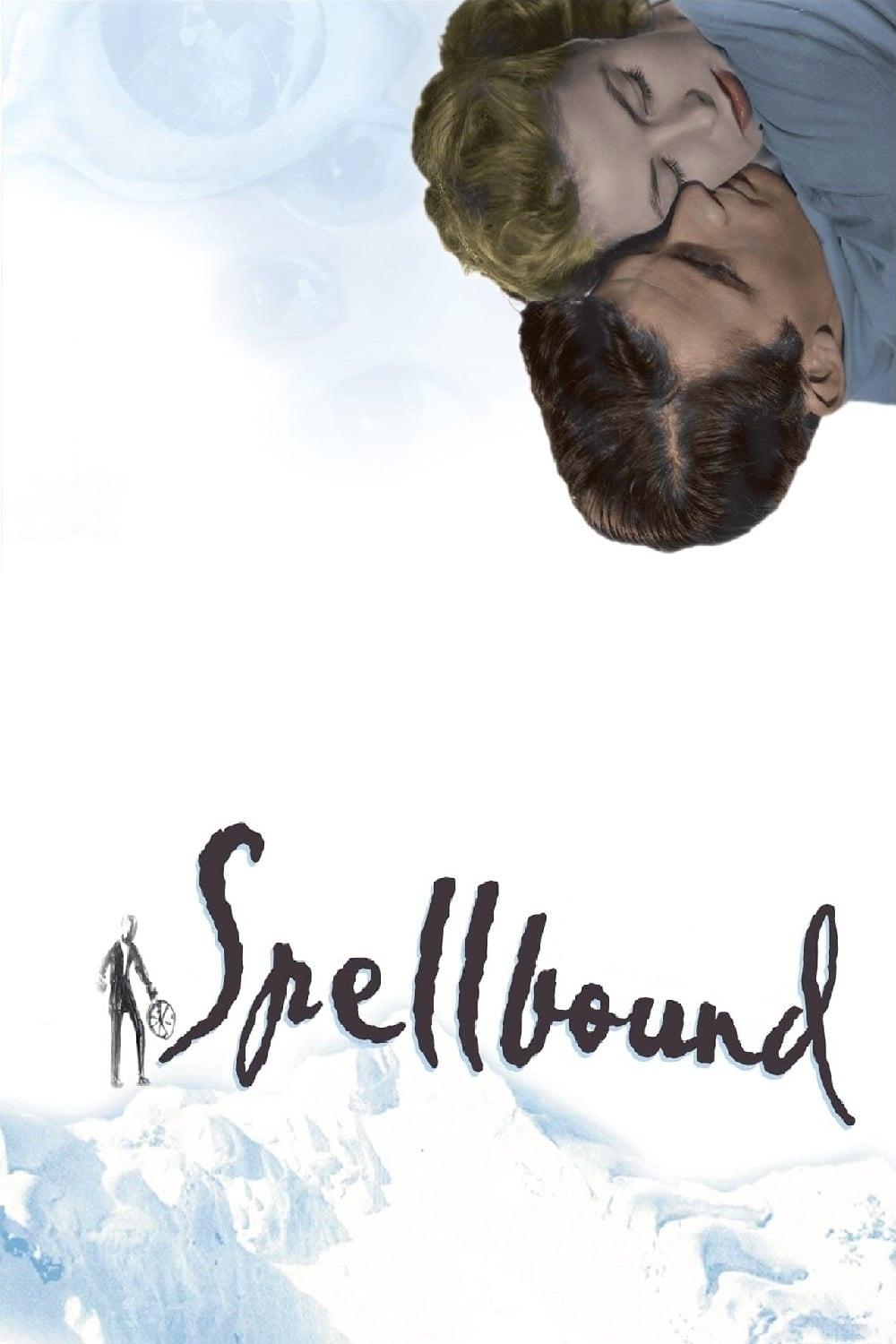 Spellbound1945-11-08When Dr. Anthony Edwardes arrives at a Vermont mental hospital to replace the outgoing hospital director, Dr. Constance Peterson, a psychoanalyst, discovers Edwardes is actually an impostor. The man confesses that the real Dr. Edwardes is dead and fears he may have killed him, but cannot recall anything. Dr. Peterson, however is convinced his impostor is innocent of the man's murder, and joins him on a quest to unravel his amnesia through psychoanalysis.More...
Spellbound1945-11-08When Dr. Anthony Edwardes arrives at a Vermont mental hospital to replace the outgoing hospital director, Dr. Constance Peterson, a psychoanalyst, discovers Edwardes is actually an impostor. The man confesses that the real Dr. Edwardes is dead and fears he may have killed him, but cannot recall anything. Dr. Peterson, however is convinced his impostor is innocent of the man's murder, and joins him on a quest to unravel his amnesia through psychoanalysis.More...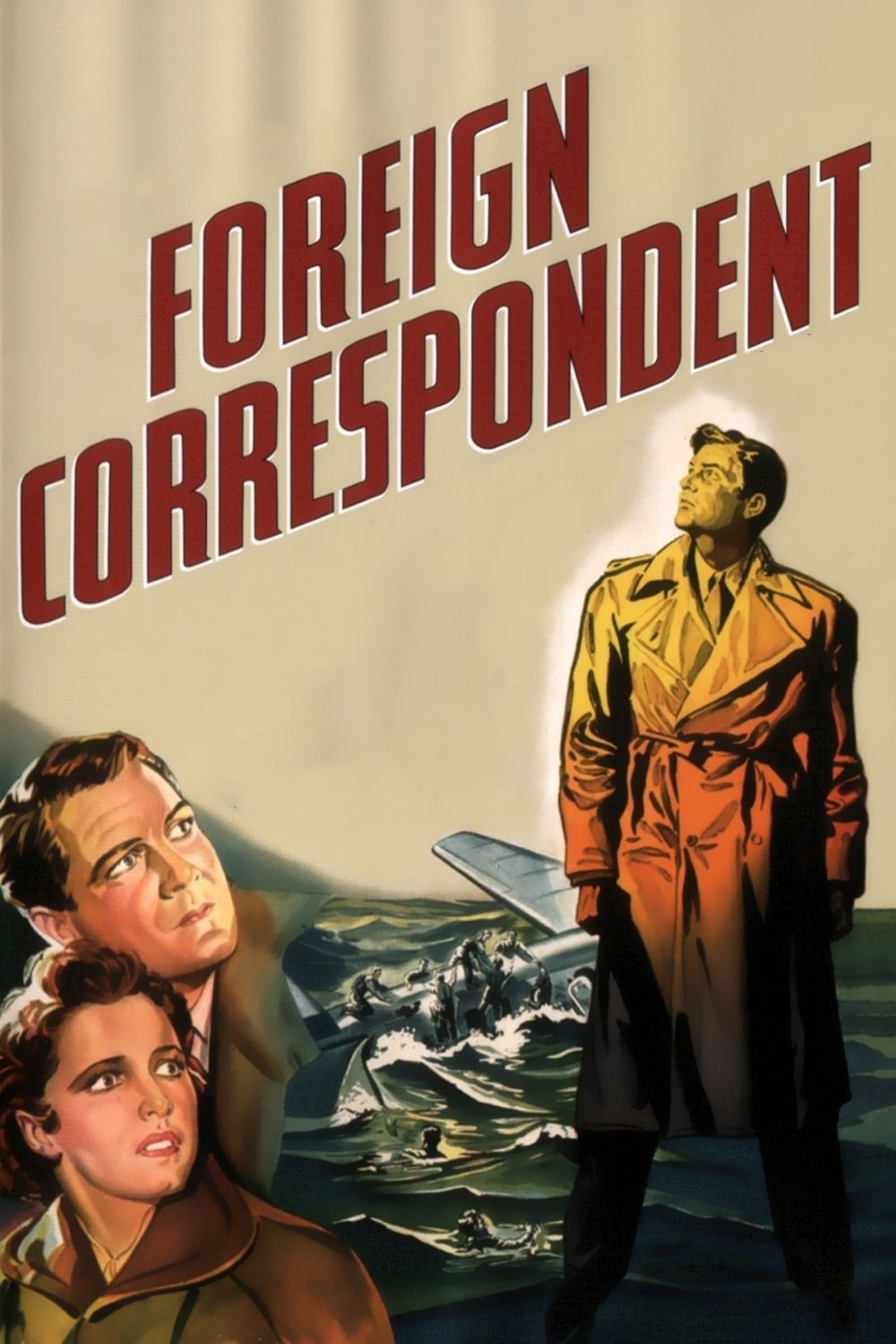 Foreign Correspondent1940-08-16American crime reporter John Jones is reassigned to Europe as a foreign correspondent to cover the imminent war. When he walks into the middle of an assassination and stumbles on a spy ring, he seeks help from a beautiful politician’s daughter and an urbane English journalist to uncover the truth.More...
Foreign Correspondent1940-08-16American crime reporter John Jones is reassigned to Europe as a foreign correspondent to cover the imminent war. When he walks into the middle of an assassination and stumbles on a spy ring, he seeks help from a beautiful politician’s daughter and an urbane English journalist to uncover the truth.More... Notorious1946-08-21In order to help bring Nazis to justice, U.S. government agent T.R. Devlin recruits Alicia Huberman, the American daughter of a convicted German war criminal, as a spy. As they begin to fall for one another, Alicia is instructed to win the affections of Alexander Sebastian, a Nazi hiding out in Brazil. When Sebastian becomes serious about his relationship with Alicia, the stakes get higher, and Devlin must watch her slip further undercover.More...
Notorious1946-08-21In order to help bring Nazis to justice, U.S. government agent T.R. Devlin recruits Alicia Huberman, the American daughter of a convicted German war criminal, as a spy. As they begin to fall for one another, Alicia is instructed to win the affections of Alexander Sebastian, a Nazi hiding out in Brazil. When Sebastian becomes serious about his relationship with Alicia, the stakes get higher, and Devlin must watch her slip further undercover.More... Strangers on a Train1951-06-27A charming psychopath tries to coerce a tennis star into his theory that two strangers can commit the perfect crime by exchanging murders—each killing the other’s most-hated person.More...
Strangers on a Train1951-06-27A charming psychopath tries to coerce a tennis star into his theory that two strangers can commit the perfect crime by exchanging murders—each killing the other’s most-hated person.More...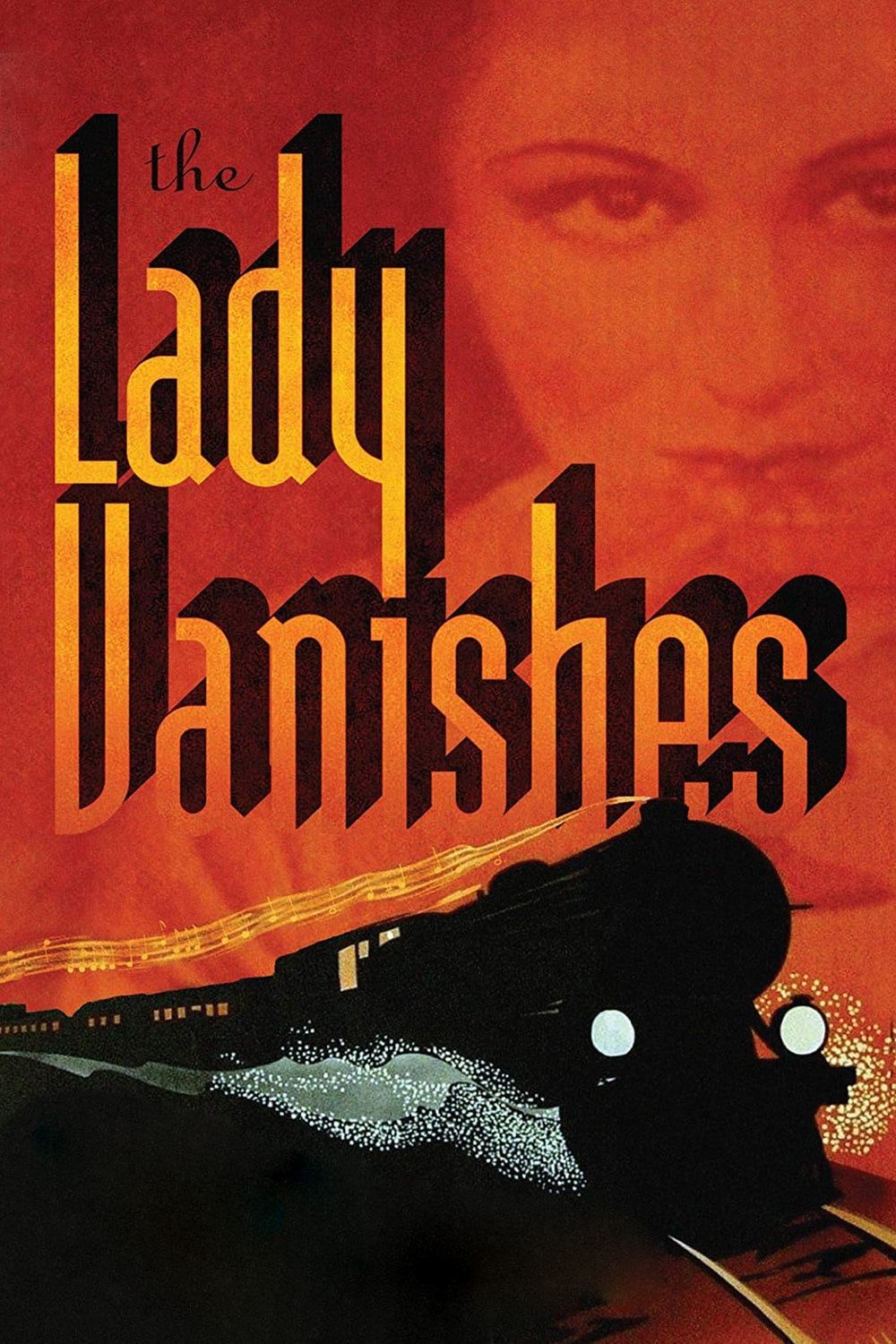 The Lady Vanishes1938-10-07On a train headed for England a group of travelers is delayed by an avalanche. Holed up in a hotel in a fictional European country, young Iris befriends elderly Miss Froy. When the train resumes, Iris suffers a bout of unconsciousness and wakes to find the old woman has disappeared. The other passengers ominously deny Miss Froy ever existed, so Iris begins to investigate with another traveler and, as the pair sleuth, romantic sparks fly.More...
The Lady Vanishes1938-10-07On a train headed for England a group of travelers is delayed by an avalanche. Holed up in a hotel in a fictional European country, young Iris befriends elderly Miss Froy. When the train resumes, Iris suffers a bout of unconsciousness and wakes to find the old woman has disappeared. The other passengers ominously deny Miss Froy ever existed, so Iris begins to investigate with another traveler and, as the pair sleuth, romantic sparks fly.More... The Grapes of Wrath1940-03-15Tom Joad returns to his home after a jail sentence to find his family kicked out of their farm due to foreclosure. He catches up with them on his Uncle’s farm, and joins them the next day as they head for California and a new life... Hopefully.More...
The Grapes of Wrath1940-03-15Tom Joad returns to his home after a jail sentence to find his family kicked out of their farm due to foreclosure. He catches up with them on his Uncle’s farm, and joins them the next day as they head for California and a new life... Hopefully.More...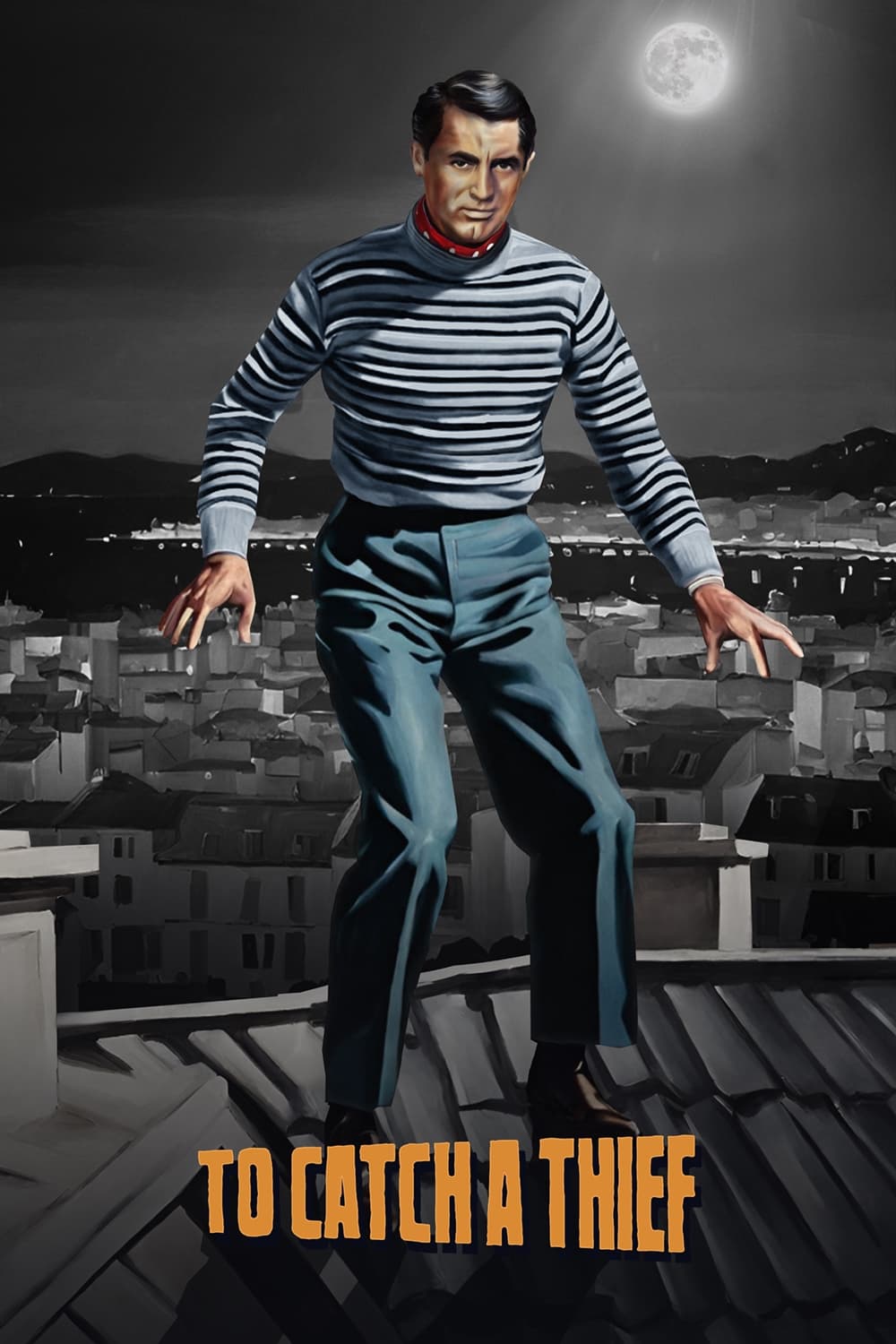 To Catch a Thief1955-08-03When a string of jewel robberies hits the French Riviera, suspicion falls on retired thief John “The Cat” Robie. To clear his name, he sets out to trap the copycat himself—entangling a wealthy widow and her beguiling daughter in a seductive game of pursuit, deception, and desire.More...
To Catch a Thief1955-08-03When a string of jewel robberies hits the French Riviera, suspicion falls on retired thief John “The Cat” Robie. To clear his name, he sets out to trap the copycat himself—entangling a wealthy widow and her beguiling daughter in a seductive game of pursuit, deception, and desire.More...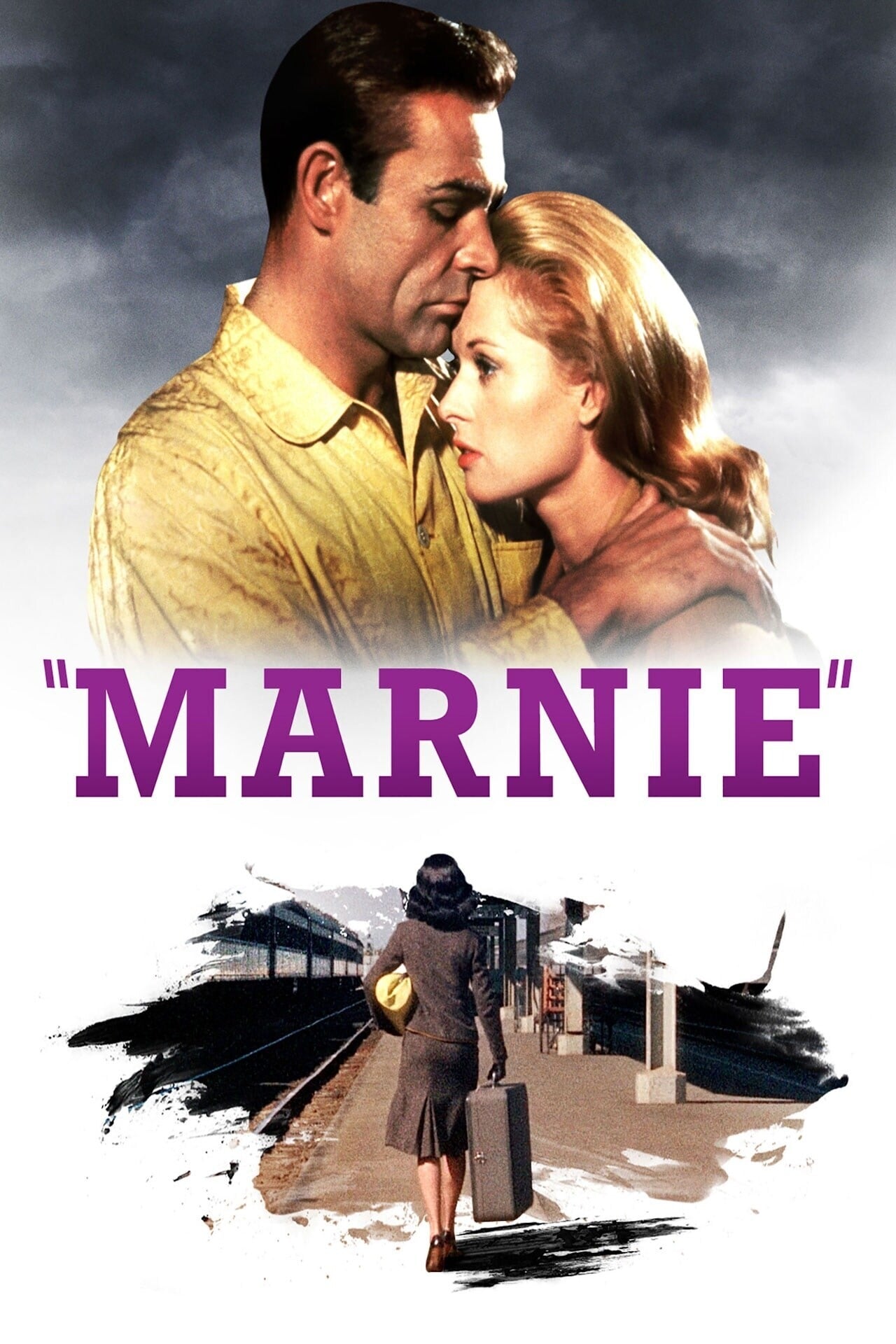 Marnie1964-07-17Marnie is a beautiful but emotionally withdrawn thief, stealing from employers before disappearing under new identities. When her new boss, Mark Rutland, discovers her secret, his fascination turns to obsession, and he blackmails her into marriage, convinced he can cure her. But as he probes deeper into Marnie’s fractured mind, long-buried fears and compulsions begin to surface.More...
Marnie1964-07-17Marnie is a beautiful but emotionally withdrawn thief, stealing from employers before disappearing under new identities. When her new boss, Mark Rutland, discovers her secret, his fascination turns to obsession, and he blackmails her into marriage, convinced he can cure her. But as he probes deeper into Marnie’s fractured mind, long-buried fears and compulsions begin to surface.More...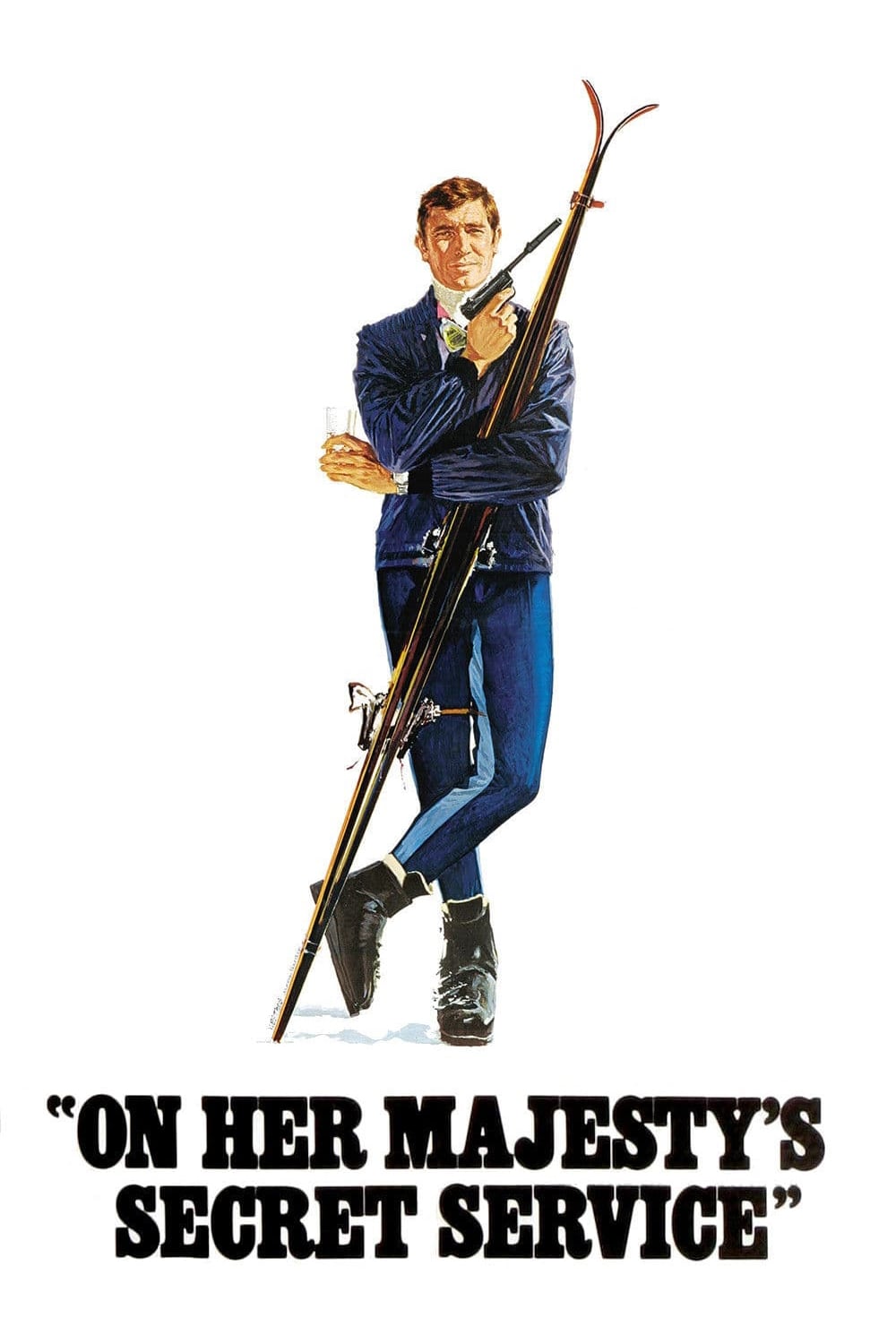 On Her Majesty's Secret Service1969-12-18James Bond tracks his archnemesis, Ernst Blofeld, to a mountaintop retreat in the Swiss alps where he is training an army of beautiful, lethal women. Along the way, Bond falls for Italian contessa Tracy Draco, and marries her in order to get closer to Blofeld.More...
On Her Majesty's Secret Service1969-12-18James Bond tracks his archnemesis, Ernst Blofeld, to a mountaintop retreat in the Swiss alps where he is training an army of beautiful, lethal women. Along the way, Bond falls for Italian contessa Tracy Draco, and marries her in order to get closer to Blofeld.More...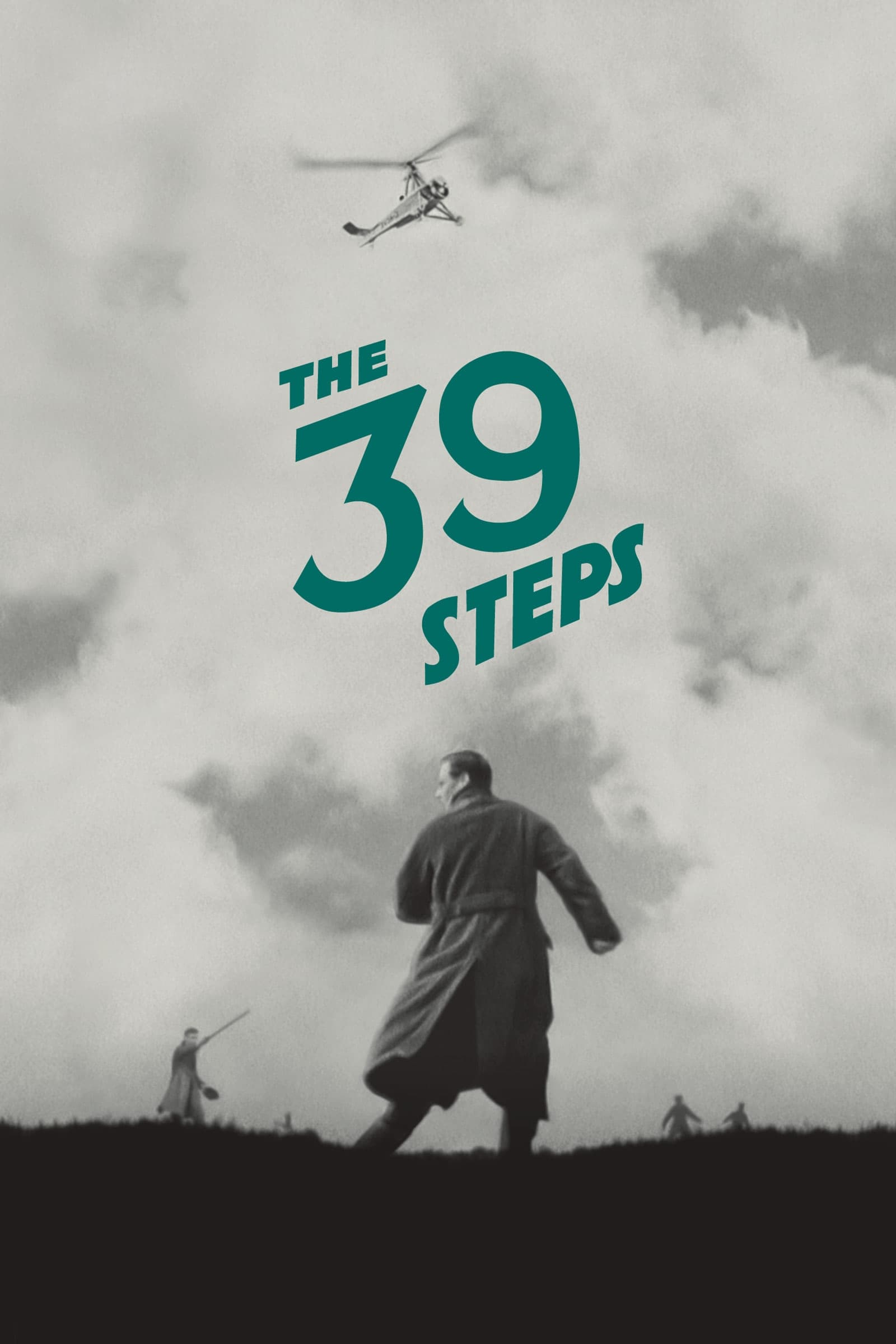 The 39 Steps1935-06-06Richard Hanney has a rude awakening when a glamorous female spy falls into his bed - with a knife in her back. Having a bit of trouble explaining it all to Scotland Yard, he heads for the hills of Scotland to try to clear his name by locating the spy ring known as The 39 Steps.More...
The 39 Steps1935-06-06Richard Hanney has a rude awakening when a glamorous female spy falls into his bed - with a knife in her back. Having a bit of trouble explaining it all to Scotland Yard, he heads for the hills of Scotland to try to clear his name by locating the spy ring known as The 39 Steps.More...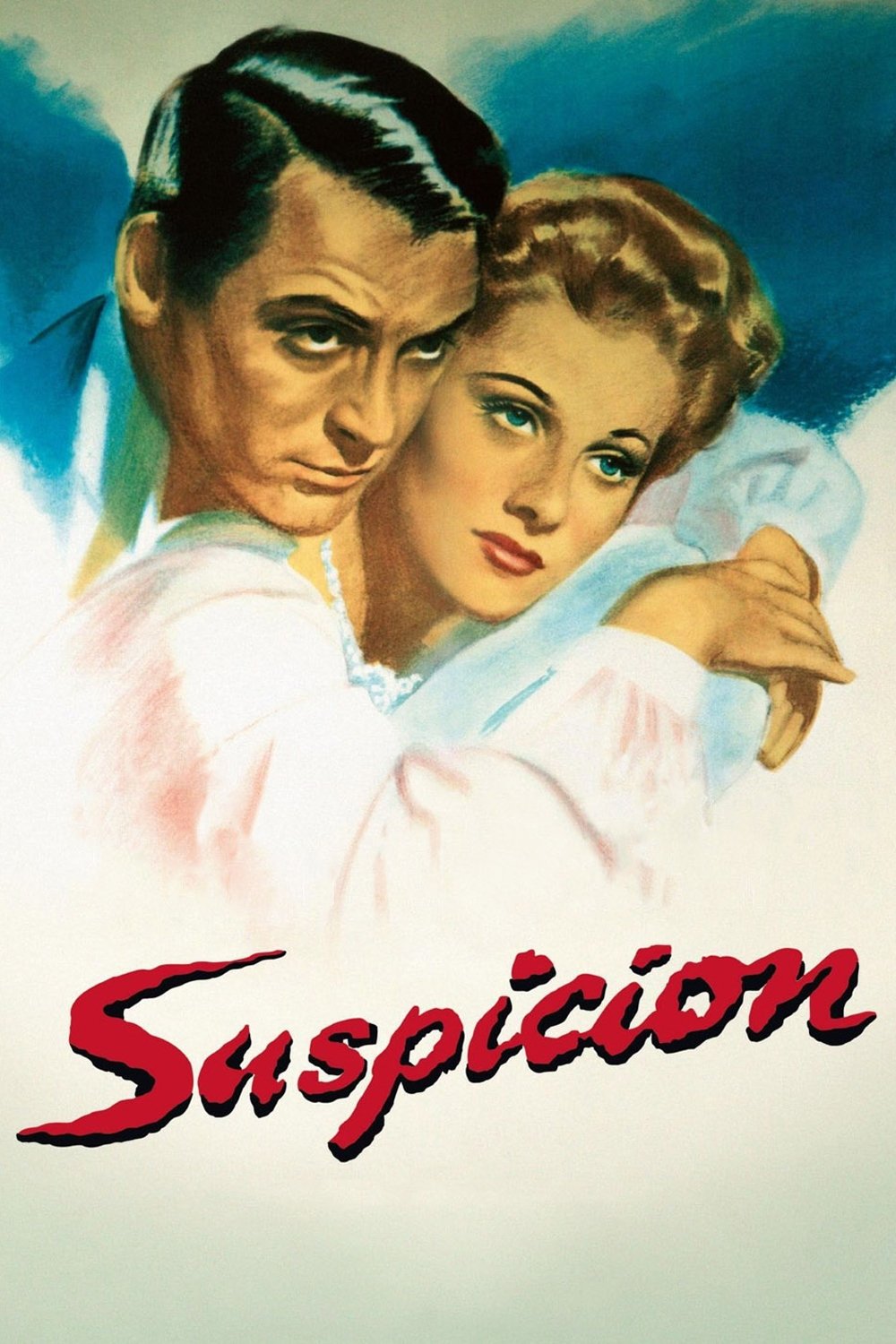 Suspicion1941-11-14A sheltered heiress falls for a charming playboy and elopes with him, but soon discovers his gambling vice and mounting debts. As his lies deepen and those around them meet mysterious ends, she begins to suspect that her husband’s affection may conceal a deadly motive—and that she could be his next victim.More...
Suspicion1941-11-14A sheltered heiress falls for a charming playboy and elopes with him, but soon discovers his gambling vice and mounting debts. As his lies deepen and those around them meet mysterious ends, she begins to suspect that her husband’s affection may conceal a deadly motive—and that she could be his next victim.More...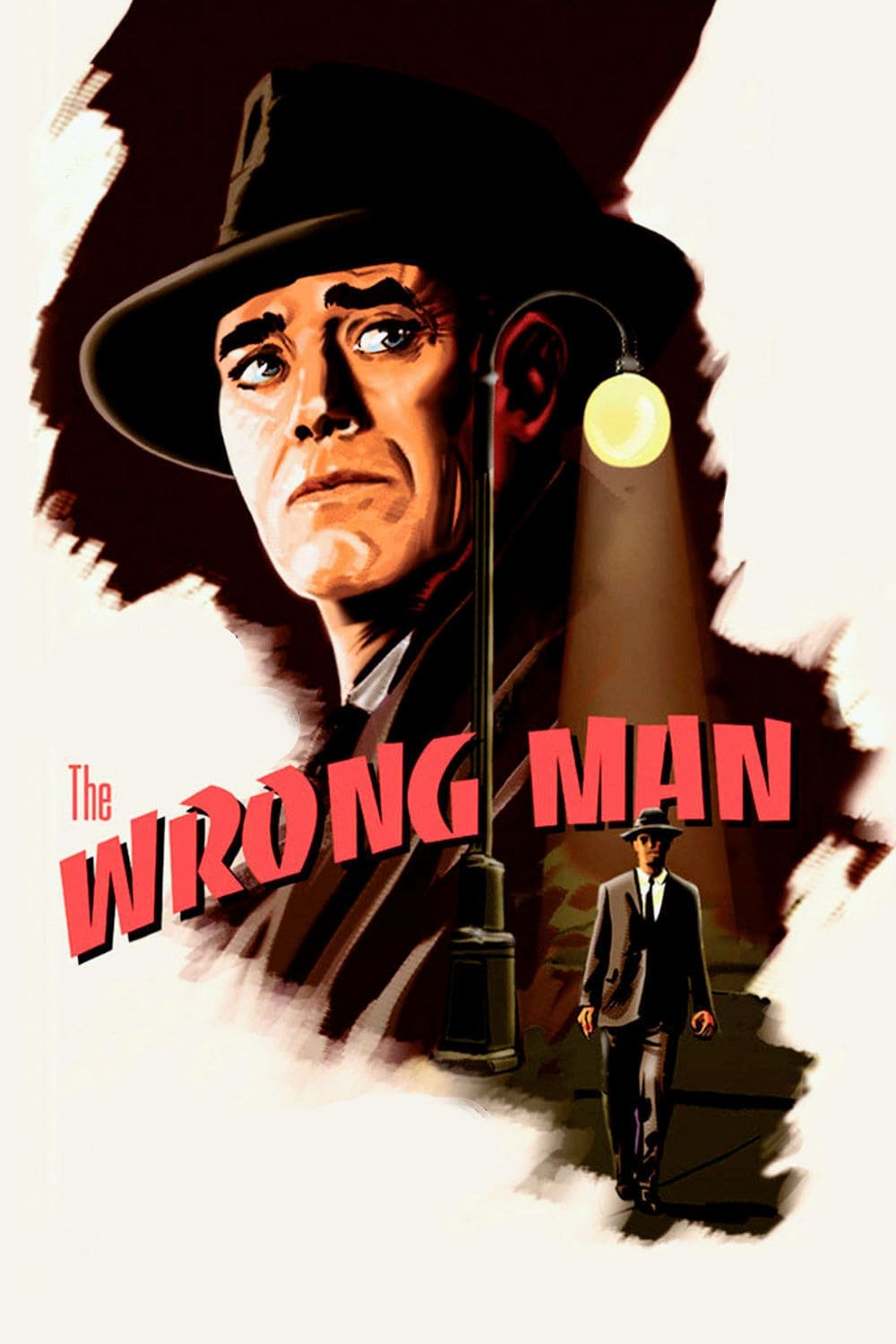 The Wrong Man1956-12-22In 1953, an innocent man named Christopher Emmanuel "Manny" Balestrero is arrested after being mistaken for an armed robber.More...
The Wrong Man1956-12-22In 1953, an innocent man named Christopher Emmanuel "Manny" Balestrero is arrested after being mistaken for an armed robber.More... Scarface1932-04-09In 1920s Chicago, Italian immigrant and notorious thug, Antonio 'Tony' Camonte, aka Scarface, shoots his way to the top of the mobs while trying to protect his sister from the criminal life.More...
Scarface1932-04-09In 1920s Chicago, Italian immigrant and notorious thug, Antonio 'Tony' Camonte, aka Scarface, shoots his way to the top of the mobs while trying to protect his sister from the criminal life.More...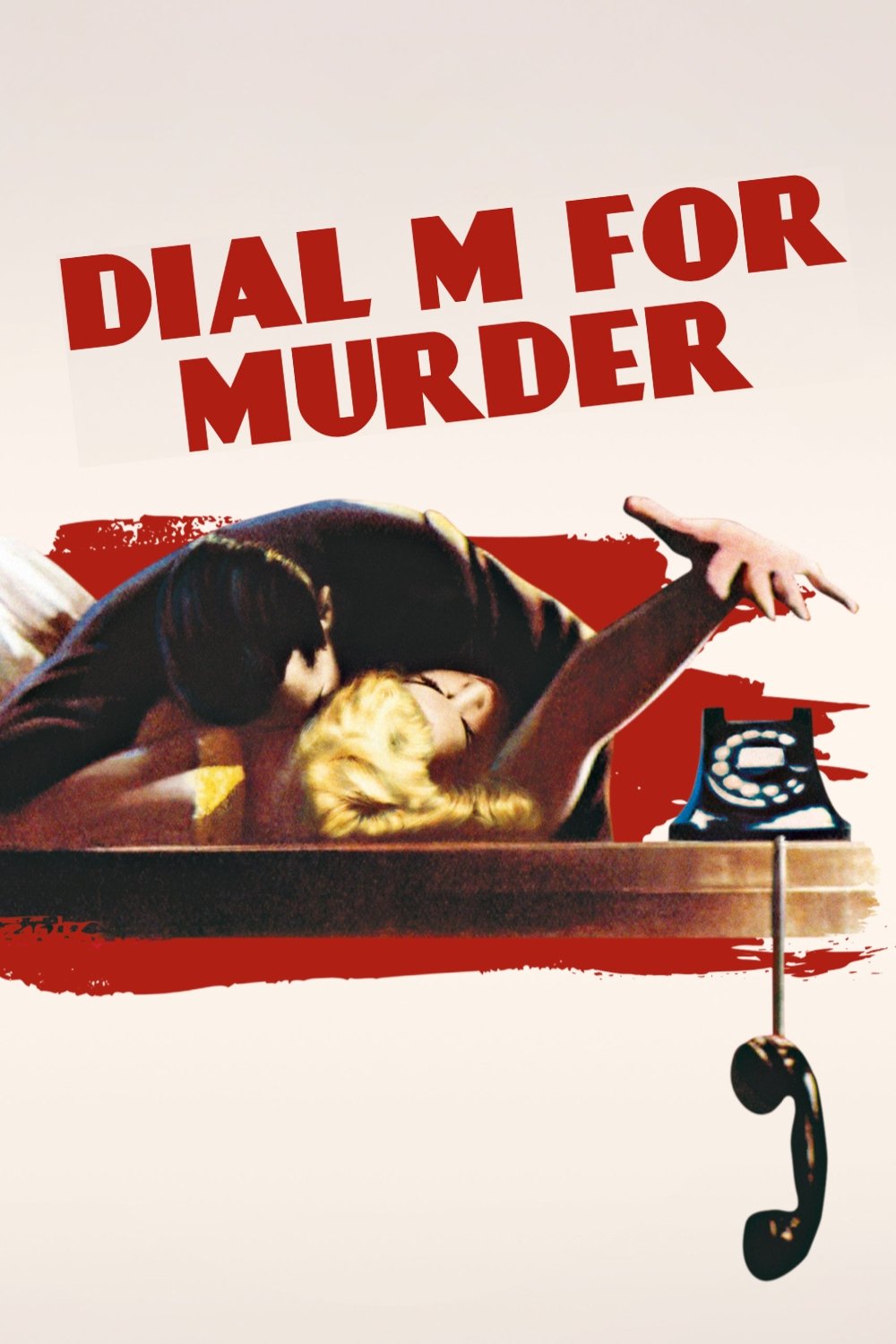 Dial M for Murder1954-05-29When her American lover visits London, a wealthy woman’s jealous husband hatches a plan to murder her and inherit her fortune.More...
Dial M for Murder1954-05-29When her American lover visits London, a wealthy woman’s jealous husband hatches a plan to murder her and inherit her fortune.More... Cool Hand Luke1967-11-01When petty criminal Luke Jackson is sentenced to two years in a Florida prison farm, he doesn't play by the rules of either the sadistic warden or the yard's resident heavy, Dragline, who ends up admiring the new guy's unbreakable will. Luke's bravado, even in the face of repeated stints in the prison's dreaded solitary confinement cell, "the box," make him a rebel hero to his fellow convicts and a thorn in the side of the prison officers.More...
Cool Hand Luke1967-11-01When petty criminal Luke Jackson is sentenced to two years in a Florida prison farm, he doesn't play by the rules of either the sadistic warden or the yard's resident heavy, Dragline, who ends up admiring the new guy's unbreakable will. Luke's bravado, even in the face of repeated stints in the prison's dreaded solitary confinement cell, "the box," make him a rebel hero to his fellow convicts and a thorn in the side of the prison officers.More...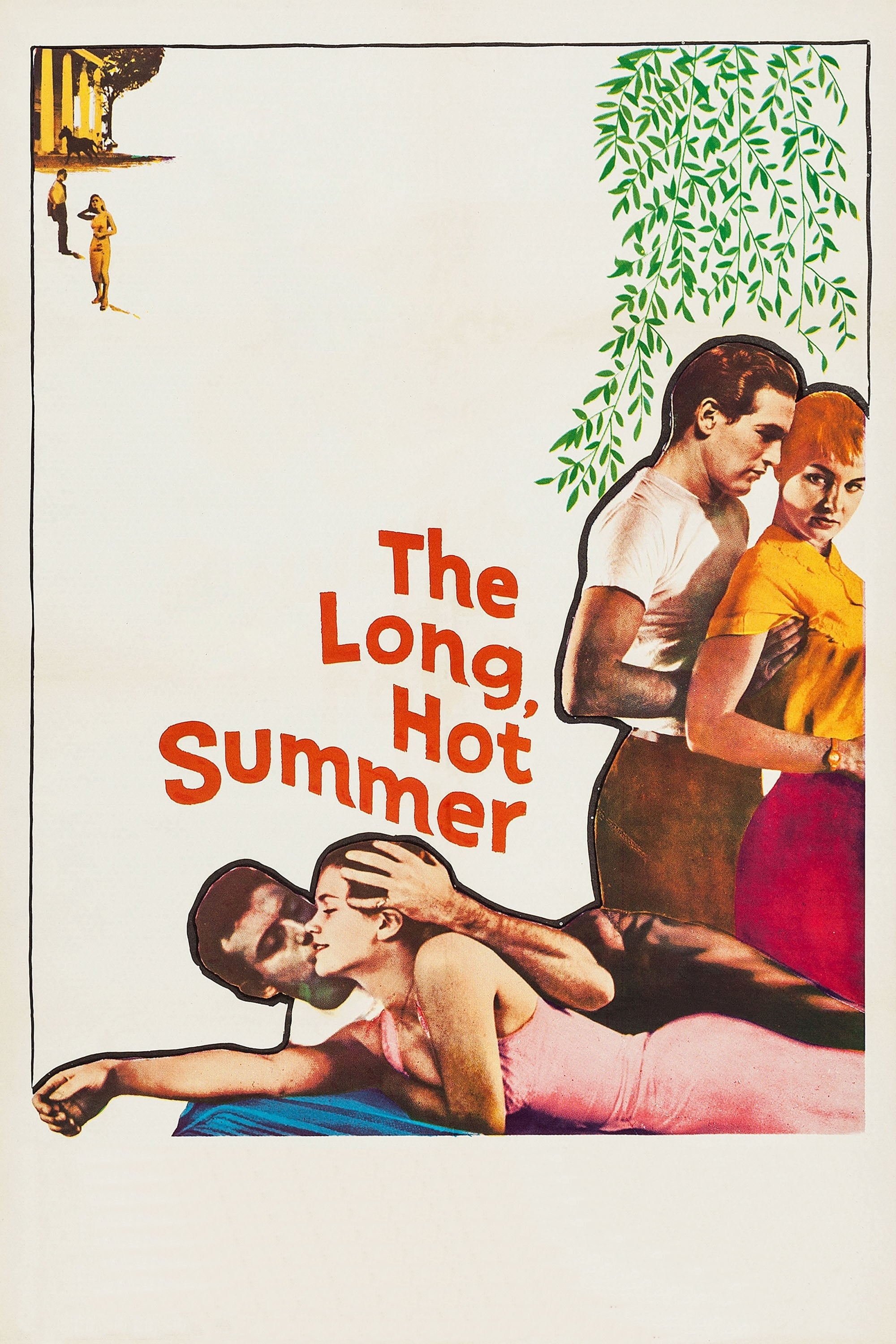 The Long, Hot Summer1958-05-17Accused barn burner and conman Ben Quick arrives in a small Mississippi town and quickly ingratiates himself with its richest family, the Varners.More...
The Long, Hot Summer1958-05-17Accused barn burner and conman Ben Quick arrives in a small Mississippi town and quickly ingratiates himself with its richest family, the Varners.More...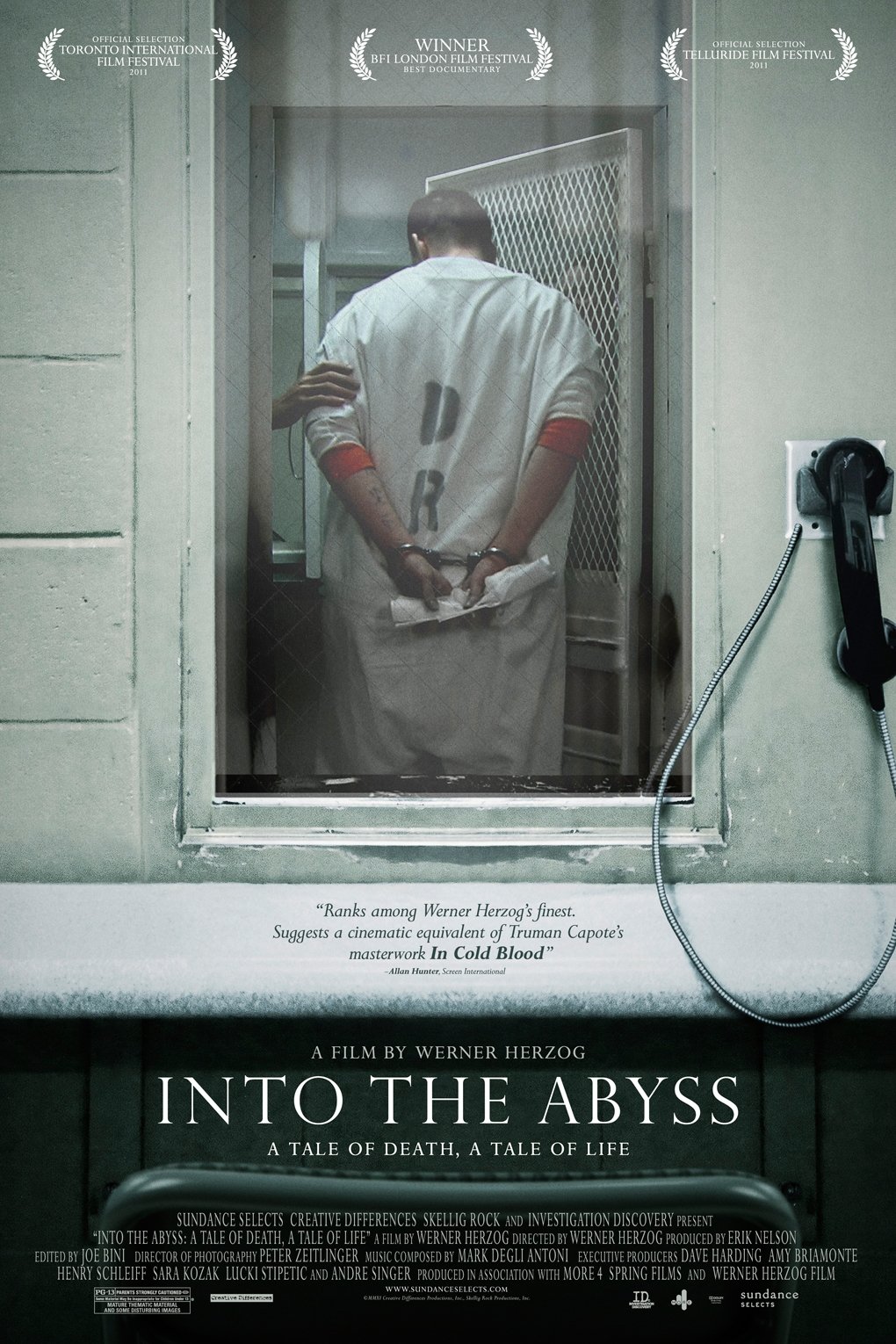 Into the Abyss2011-11-11We do not know when and how we will die. Death Row inmates do. Werner Herzog embarks on a dialogue with Death Row inmates, asks questions about life and death and looks deep into these individuals, their stories, their crimes.More...
Into the Abyss2011-11-11We do not know when and how we will die. Death Row inmates do. Werner Herzog embarks on a dialogue with Death Row inmates, asks questions about life and death and looks deep into these individuals, their stories, their crimes.More...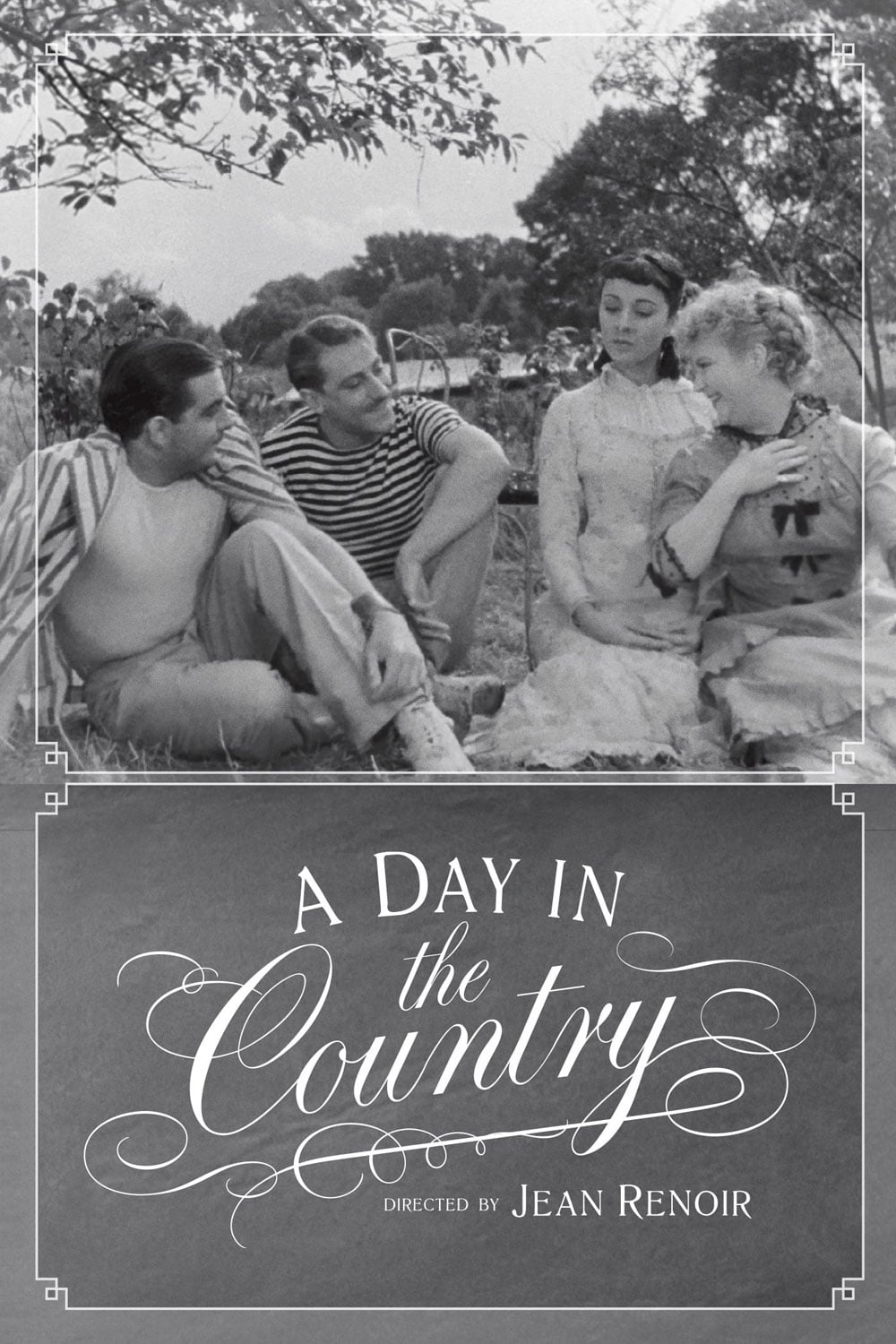 A Day in the Country1946-05-21The family of a Parisian shop-owner spends a day in the country. The daughter falls in love with a man at the inn, where they spend the day.More...
A Day in the Country1946-05-21The family of a Parisian shop-owner spends a day in the country. The daughter falls in love with a man at the inn, where they spend the day.More...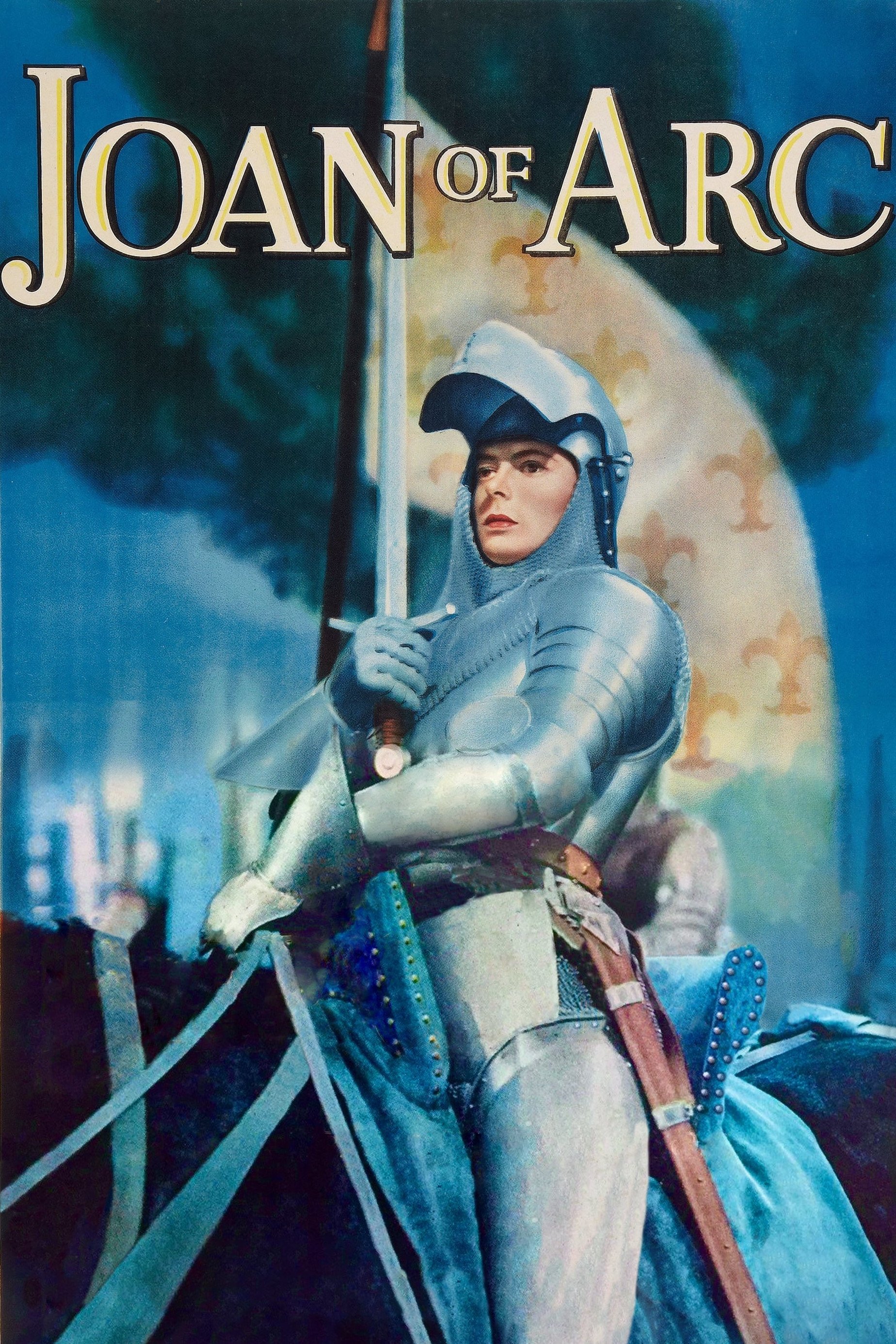 Joan of Arc1948-12-22In the 15th Century, France is a defeated and ruined nation after the One Hundred Years War against England. The fourteen-year-old farm girl Joan of Arc claims to hear voices from Heaven asking her to lead God's Army against Orleans and crowning the weak Dauphin Charles VII as King of France. Joan gathers the people with her faith, forms an army, and conquers Orleans.More...
Joan of Arc1948-12-22In the 15th Century, France is a defeated and ruined nation after the One Hundred Years War against England. The fourteen-year-old farm girl Joan of Arc claims to hear voices from Heaven asking her to lead God's Army against Orleans and crowning the weak Dauphin Charles VII as King of France. Joan gathers the people with her faith, forms an army, and conquers Orleans.More...
Similar Movies
Forrest Gump
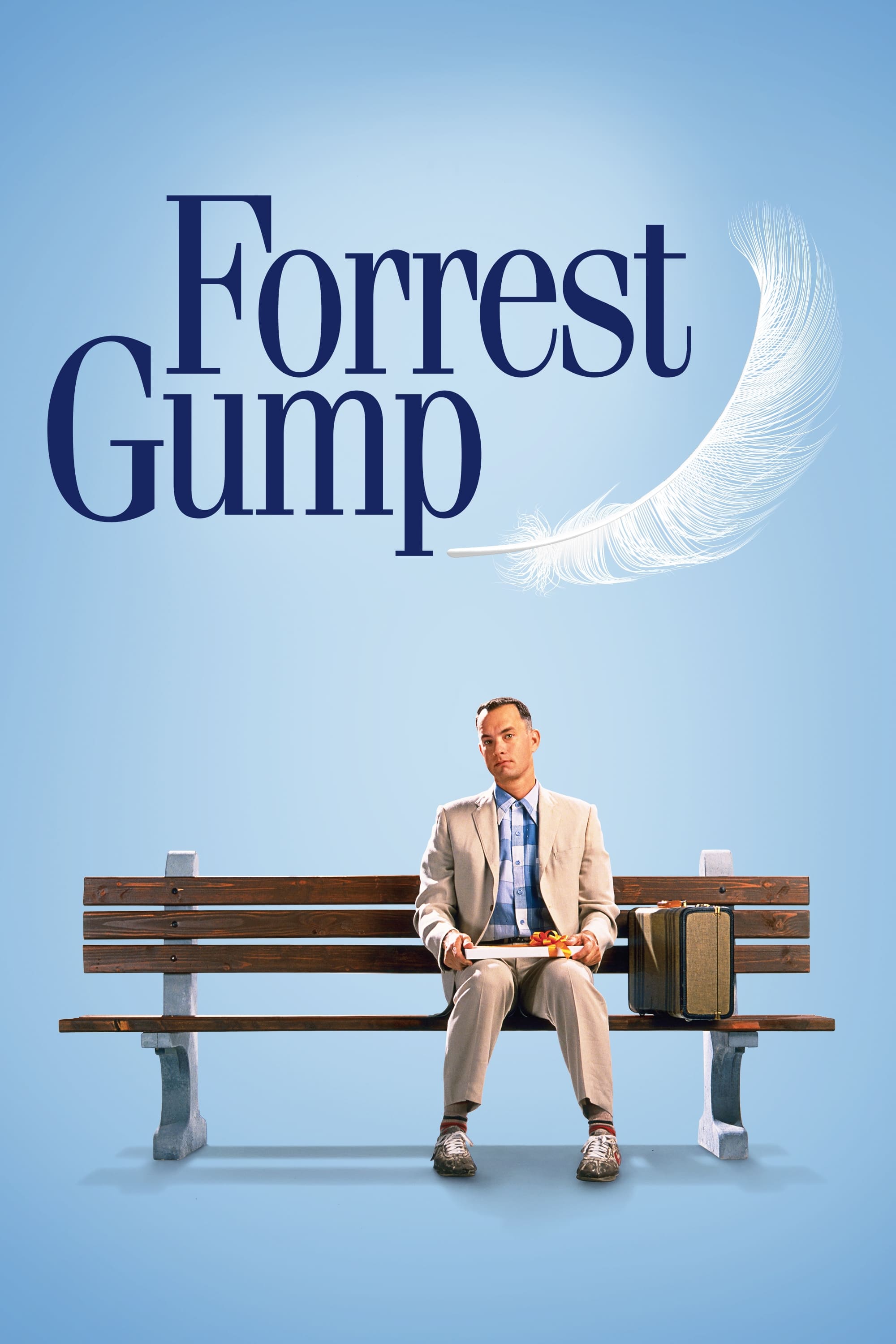 1994-06-23A man with a low IQ has accomplished great things in his life and been present during significant historic events—in each case, far exceeding what anyone imagined he could do. But despite all he has achieved, his one true love eludes him.
1994-06-23A man with a low IQ has accomplished great things in his life and been present during significant historic events—in each case, far exceeding what anyone imagined he could do. But despite all he has achieved, his one true love eludes him.Citizen Kane
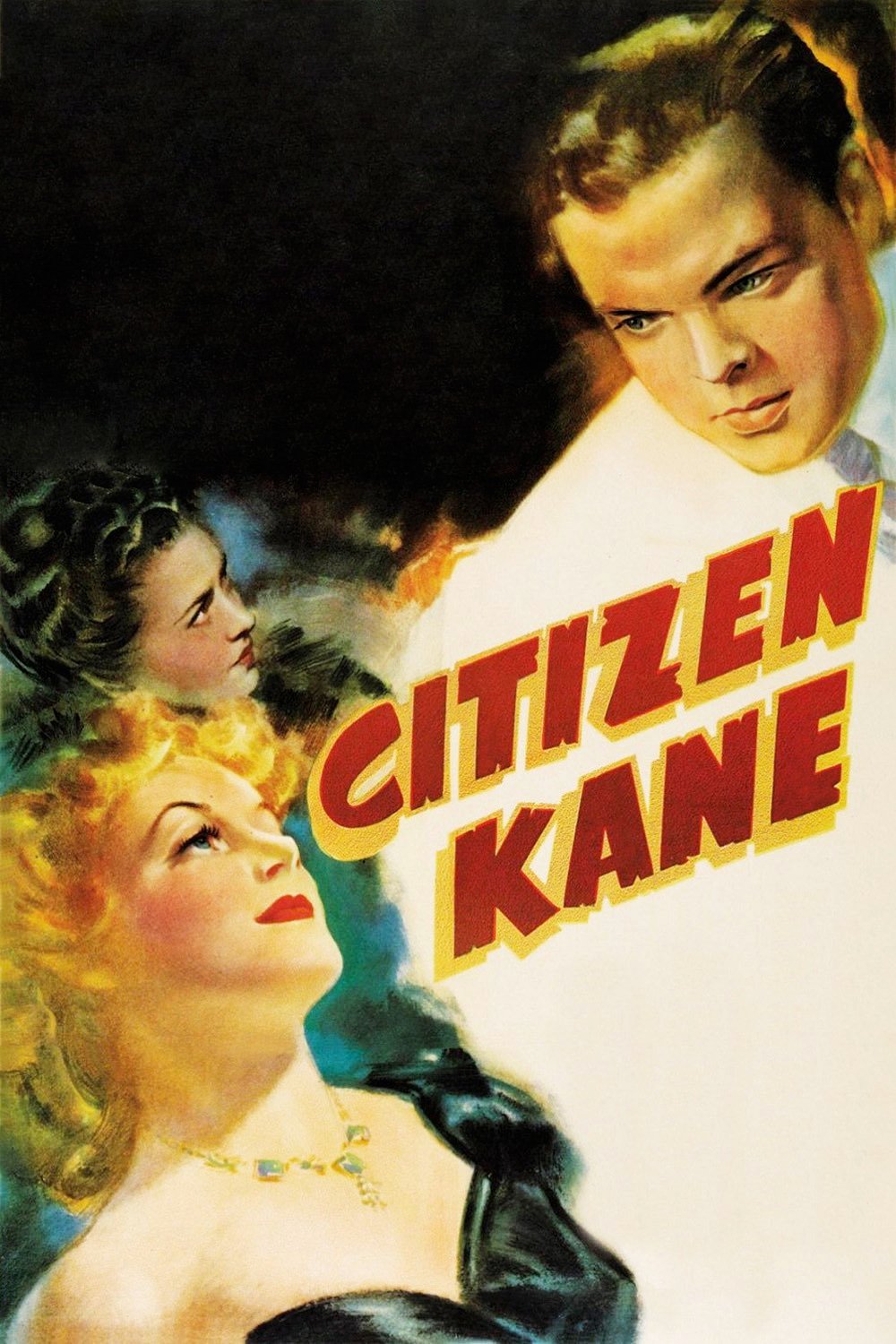 1941-04-17Newspaper magnate Charles Foster Kane is taken from his mother as a boy and made the ward of a rich industrialist. As a result, every well-meaning, tyrannical or self-destructive move he makes for the rest of his life appears in some way to be a reaction to that deeply wounding event.
1941-04-17Newspaper magnate Charles Foster Kane is taken from his mother as a boy and made the ward of a rich industrialist. As a result, every well-meaning, tyrannical or self-destructive move he makes for the rest of his life appears in some way to be a reaction to that deeply wounding event.The Dark
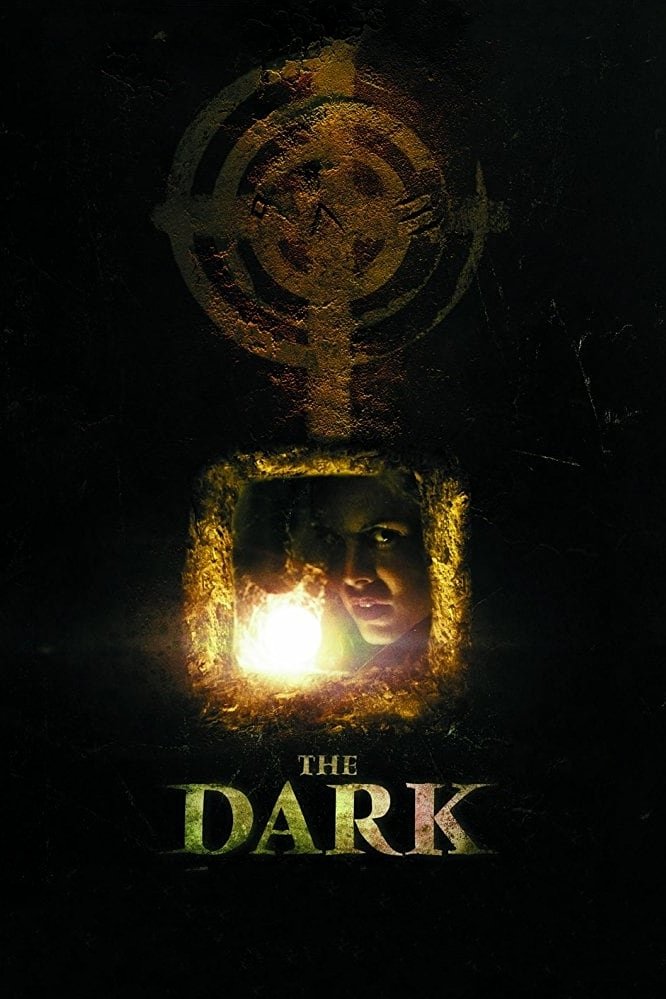 2005-09-28In an attempt to pull her family together, Adèlle travels with her young daughter Sarah to Wales to visit her father. The morning after they arrive, Sarah mysteriously vanishes in the ocean. Not long after, a little girl bearing a striking resemblance to their missing daughter reveals that she has retuned from the dead — and that Sarah has been taken to the Welsh underworld.
2005-09-28In an attempt to pull her family together, Adèlle travels with her young daughter Sarah to Wales to visit her father. The morning after they arrive, Sarah mysteriously vanishes in the ocean. Not long after, a little girl bearing a striking resemblance to their missing daughter reveals that she has retuned from the dead — and that Sarah has been taken to the Welsh underworld.Violet Evergarden: Re...
 2021-10-29An emotionally scarred former child soldier becomes a letter writer in this condensed recap of the moving, gorgeously animated award-winning series.
2021-10-29An emotionally scarred former child soldier becomes a letter writer in this condensed recap of the moving, gorgeously animated award-winning series.Dananeir
 1940-09-29A concubine to a ruling family is challenged when the family is overthrown.
1940-09-29A concubine to a ruling family is challenged when the family is overthrown.A Thousand Days
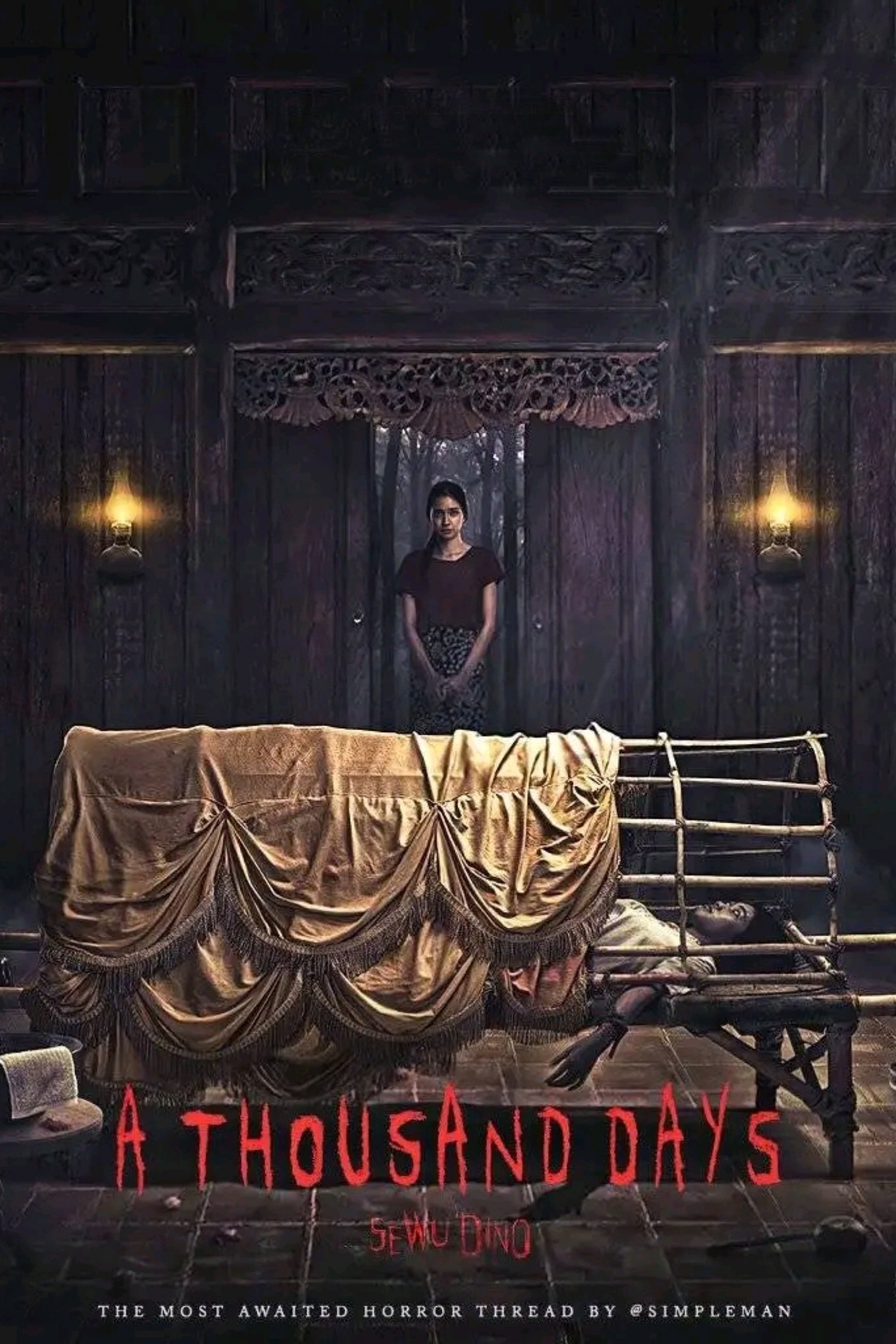 2023-04-19Sri accepts a generous job offer and tasked to perform a cleansing ritual for Dela Atmojo, an unconscious girl who is suffering from the hex of 1000-days. The terror begins when her coworker neglects to finish the ritual. Failing to perform until the 1000th day will result in their demise.
2023-04-19Sri accepts a generous job offer and tasked to perform a cleansing ritual for Dela Atmojo, an unconscious girl who is suffering from the hex of 1000-days. The terror begins when her coworker neglects to finish the ritual. Failing to perform until the 1000th day will result in their demise.Asami Mitsuhiko: Genj...
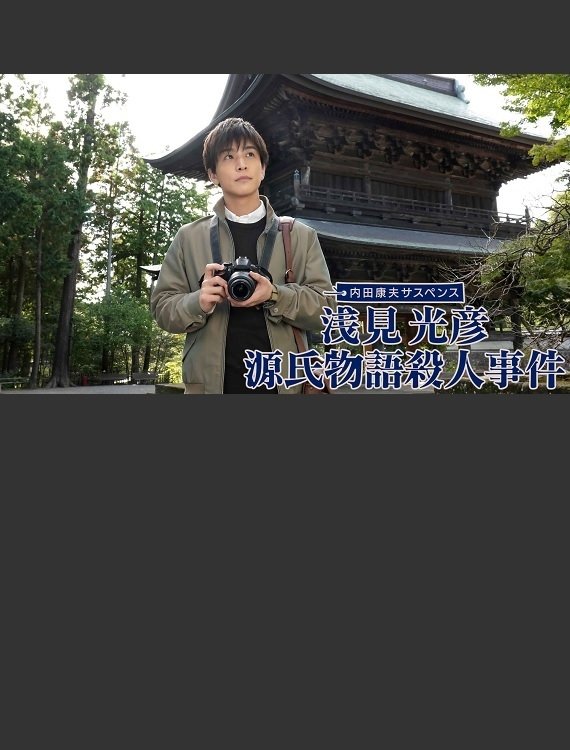 2022-12-12There is no description
2022-12-12There is no descriptionTulips in October
 2022-12-22Detective Ushio is called in to the murder of an elite heart surgeon, who was stabbed twice at a cluster of vending machines in a parking lot.
2022-12-22Detective Ushio is called in to the murder of an elite heart surgeon, who was stabbed twice at a cluster of vending machines in a parking lot.9 Songs
 2004-07-16Matt, a young glaciologist, soars across the vast, silent, icebound immensities of the South Pole as he recalls his love affair with Lisa. They meet at a mobbed rock concert in a vast music hall - London's Brixton Academy. They are in bed at night's end. Together, over a period of several months, they pursue a mutual sexual passion whose inevitable stages unfold in counterpoint to nine live-concert songs.
2004-07-16Matt, a young glaciologist, soars across the vast, silent, icebound immensities of the South Pole as he recalls his love affair with Lisa. They meet at a mobbed rock concert in a vast music hall - London's Brixton Academy. They are in bed at night's end. Together, over a period of several months, they pursue a mutual sexual passion whose inevitable stages unfold in counterpoint to nine live-concert songs.Eternal Sunshine of t...
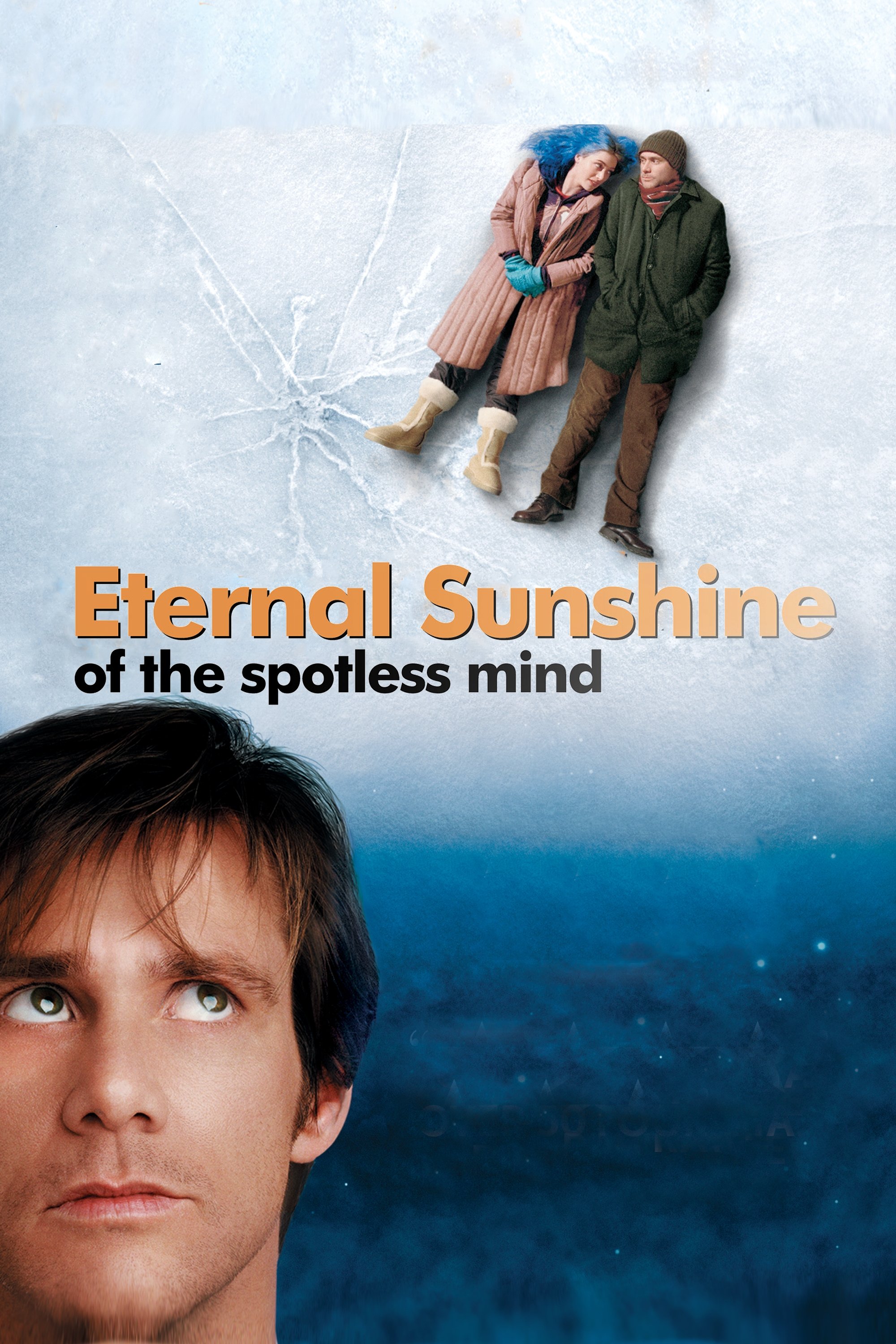 2004-03-19Joel Barish, heartbroken that his girlfriend underwent a procedure to erase him from her memory, decides to do the same. However, as he watches his memories of her fade away, he realises that he still loves her, and may be too late to correct his mistake.
2004-03-19Joel Barish, heartbroken that his girlfriend underwent a procedure to erase him from her memory, decides to do the same. However, as he watches his memories of her fade away, he realises that he still loves her, and may be too late to correct his mistake.Amores Perros
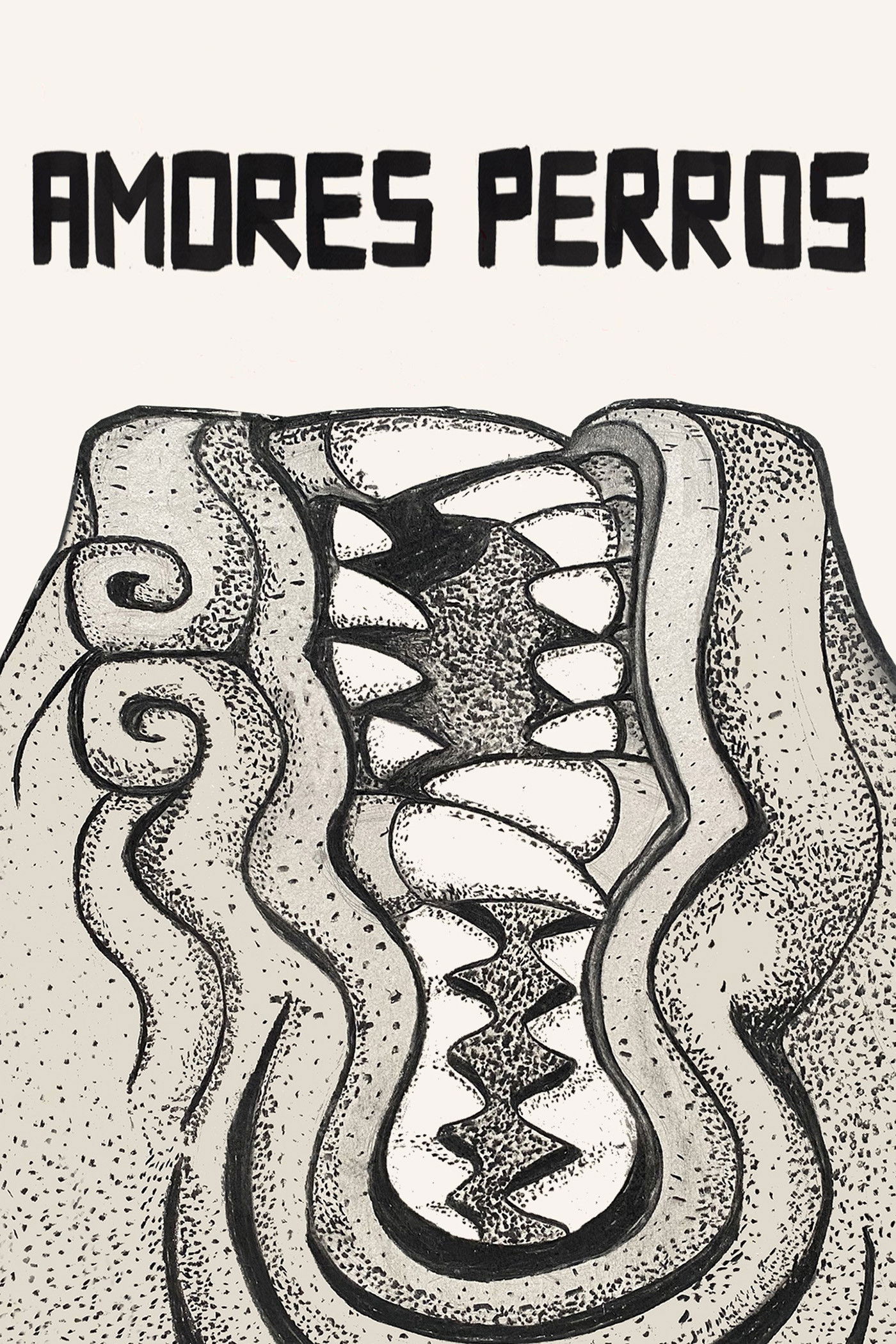 2000-06-16A fatalistic car crash in Mexico city sets off a chain of events in the lives of three people: a supermodel, a young man wanting to run off with his sister-in-law, and a homeless man.
2000-06-16A fatalistic car crash in Mexico city sets off a chain of events in the lives of three people: a supermodel, a young man wanting to run off with his sister-in-law, and a homeless man.2001: A Space Odyssey...
 1968-04-02Humanity finds a mysterious object buried beneath the lunar surface and sets off to find its origins with the help of HAL 9000, the world's most advanced super computer.
1968-04-02Humanity finds a mysterious object buried beneath the lunar surface and sets off to find its origins with the help of HAL 9000, the world's most advanced super computer.War of the Worlds
 2005-06-28Ray Ferrier is a divorced dockworker and less-than-perfect father. Soon after his ex-wife and her new husband drop off his teenage son and young daughter for a rare weekend visit, a strange and powerful lightning storm touches down.
2005-06-28Ray Ferrier is a divorced dockworker and less-than-perfect father. Soon after his ex-wife and her new husband drop off his teenage son and young daughter for a rare weekend visit, a strange and powerful lightning storm touches down.Before Sunrise
 1995-01-27An unexpected meeting on a train leads two travelers to spend an evening wandering through Vienna. As the night unfolds, they share stories and conversations about life and love, exploring new ideas while a quiet intimacy grows between them, knowing it may be their only night together.
1995-01-27An unexpected meeting on a train leads two travelers to spend an evening wandering through Vienna. As the night unfolds, they share stories and conversations about life and love, exploring new ideas while a quiet intimacy grows between them, knowing it may be their only night together.Blade Runner
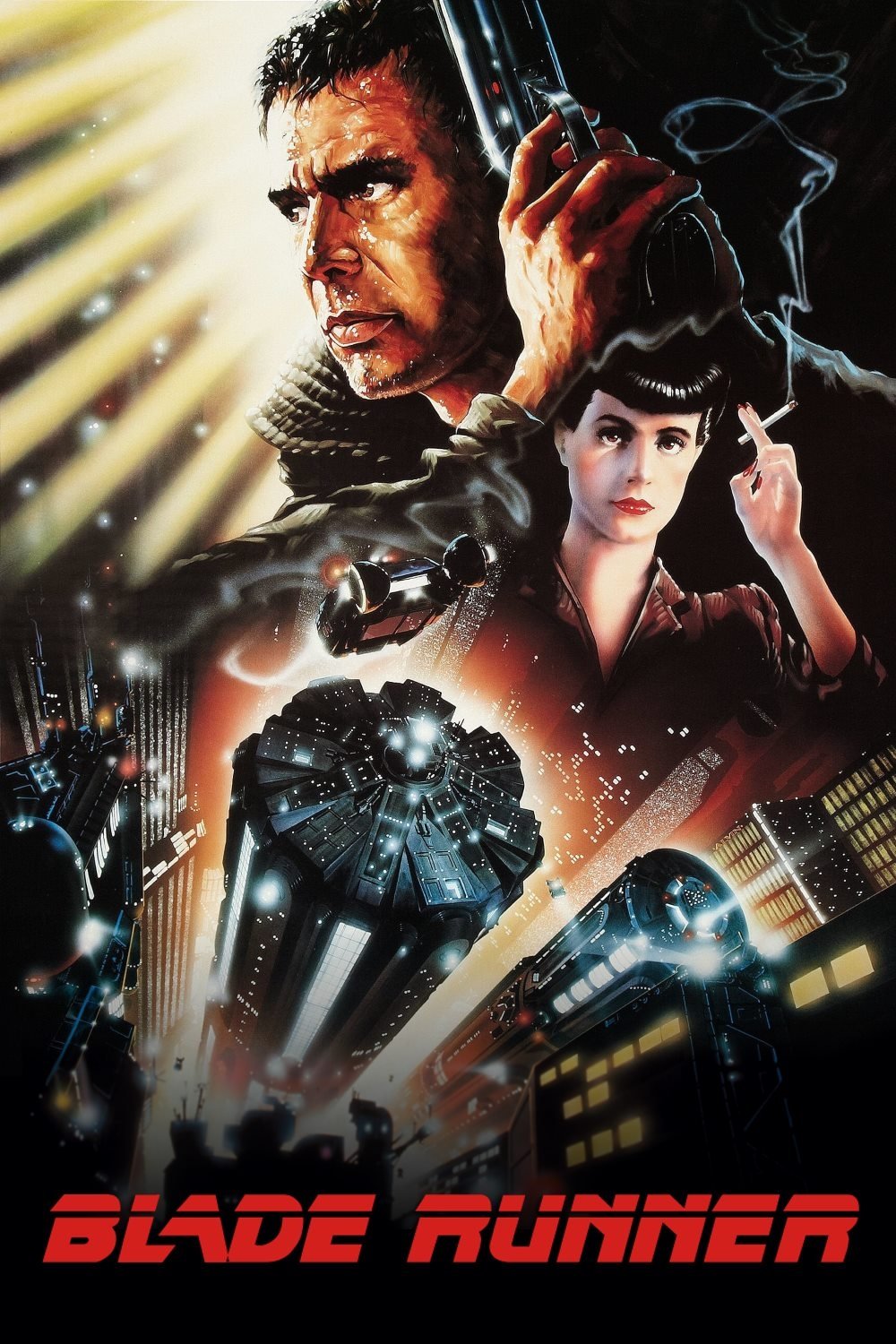 1982-06-25In the smog-choked dystopian Los Angeles of 2019, blade runner Rick Deckard is called out of retirement to terminate a quartet of replicants who have escaped to Earth seeking their creator for a way to extend their short life spans.
1982-06-25In the smog-choked dystopian Los Angeles of 2019, blade runner Rick Deckard is called out of retirement to terminate a quartet of replicants who have escaped to Earth seeking their creator for a way to extend their short life spans.The Elementary Partic...
 2006-02-10Based on Michel Houellebecq's controversial novel, Atomised (aka The Elementary Particles) focuses on Michael and Bruno, two very different half-brothers and their disturbed sexuality. After a chaotic childhood with a hippie mother only caring for her affairs, Michael, a molecular biologist, is more interested in genes than women, while Bruno is obsessed with his sexual desires, but mostly finds his satisfaction with prostitutes. But Bruno's life changes when he gets to know the experienced Christiane. In the meantime, Michael meets Annabelle, the love of his youth, again.
2006-02-10Based on Michel Houellebecq's controversial novel, Atomised (aka The Elementary Particles) focuses on Michael and Bruno, two very different half-brothers and their disturbed sexuality. After a chaotic childhood with a hippie mother only caring for her affairs, Michael, a molecular biologist, is more interested in genes than women, while Bruno is obsessed with his sexual desires, but mostly finds his satisfaction with prostitutes. But Bruno's life changes when he gets to know the experienced Christiane. In the meantime, Michael meets Annabelle, the love of his youth, again.Anatomy of a Murder
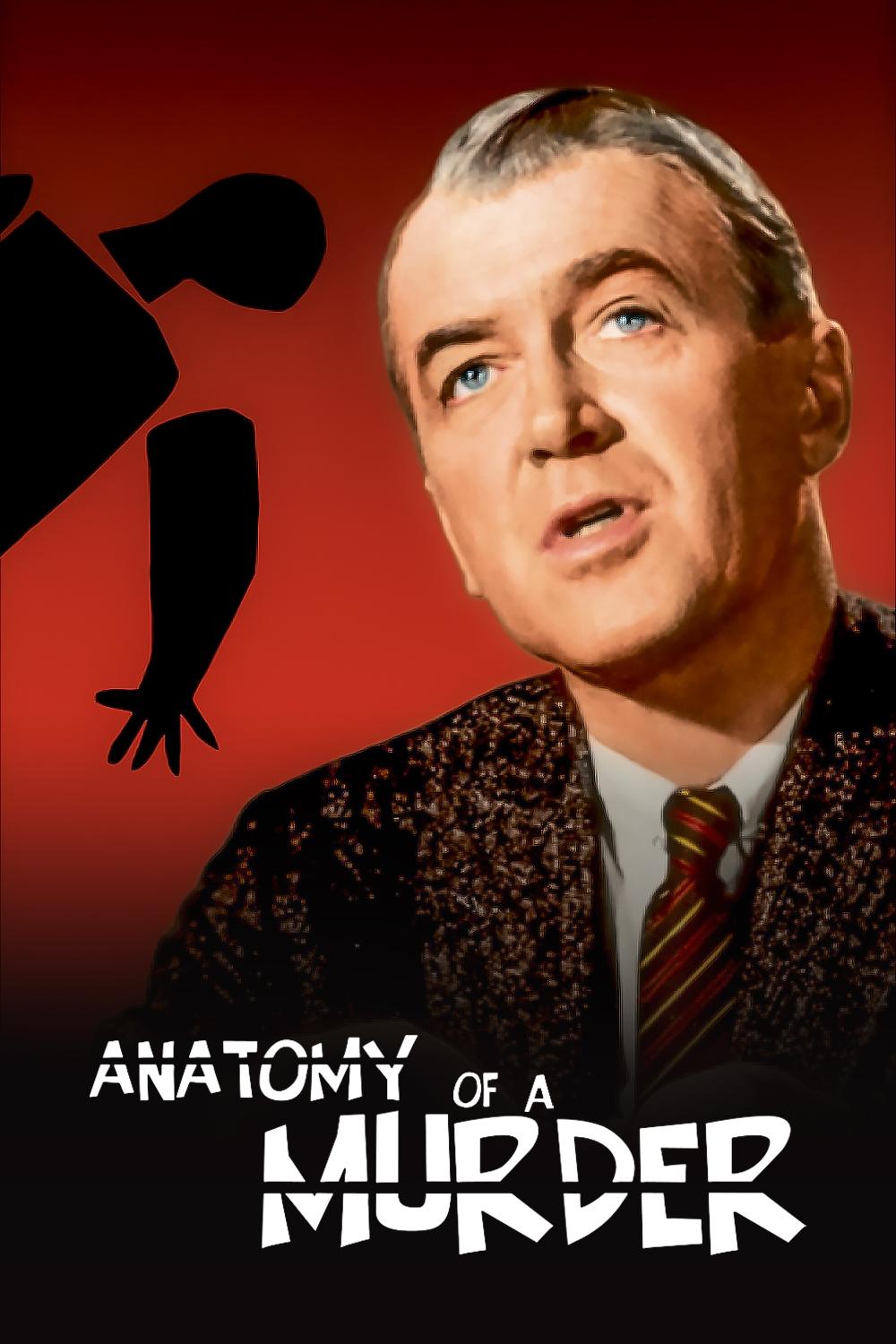 1959-07-01Semi-retired Michigan lawyer Paul Biegler takes the case of Army Lt. Manion, who murdered a local innkeeper after his wife claimed that he raped her. Over the course of an extensive trial, Biegler parries with District Attorney Lodwick and out-of-town prosecutor Claude Dancer to set his client free, but his case rests on the victim's mysterious business partner, who's hiding a dark secret.
1959-07-01Semi-retired Michigan lawyer Paul Biegler takes the case of Army Lt. Manion, who murdered a local innkeeper after his wife claimed that he raped her. Over the course of an extensive trial, Biegler parries with District Attorney Lodwick and out-of-town prosecutor Claude Dancer to set his client free, but his case rests on the victim's mysterious business partner, who's hiding a dark secret.Armageddon
 1998-07-01When an asteroid threatens to collide with Earth, NASA honcho Dan Truman determines the only way to stop it is to drill into its surface and detonate a nuclear bomb. This leads him to renowned driller Harry Stamper, who agrees to helm the dangerous space mission provided he can bring along his own hotshot crew. Among them is the cocksure A.J. who Harry thinks isn't good enough for his daughter, until the mission proves otherwise.
1998-07-01When an asteroid threatens to collide with Earth, NASA honcho Dan Truman determines the only way to stop it is to drill into its surface and detonate a nuclear bomb. This leads him to renowned driller Harry Stamper, who agrees to helm the dangerous space mission provided he can bring along his own hotshot crew. Among them is the cocksure A.J. who Harry thinks isn't good enough for his daughter, until the mission proves otherwise.Three Colors: White
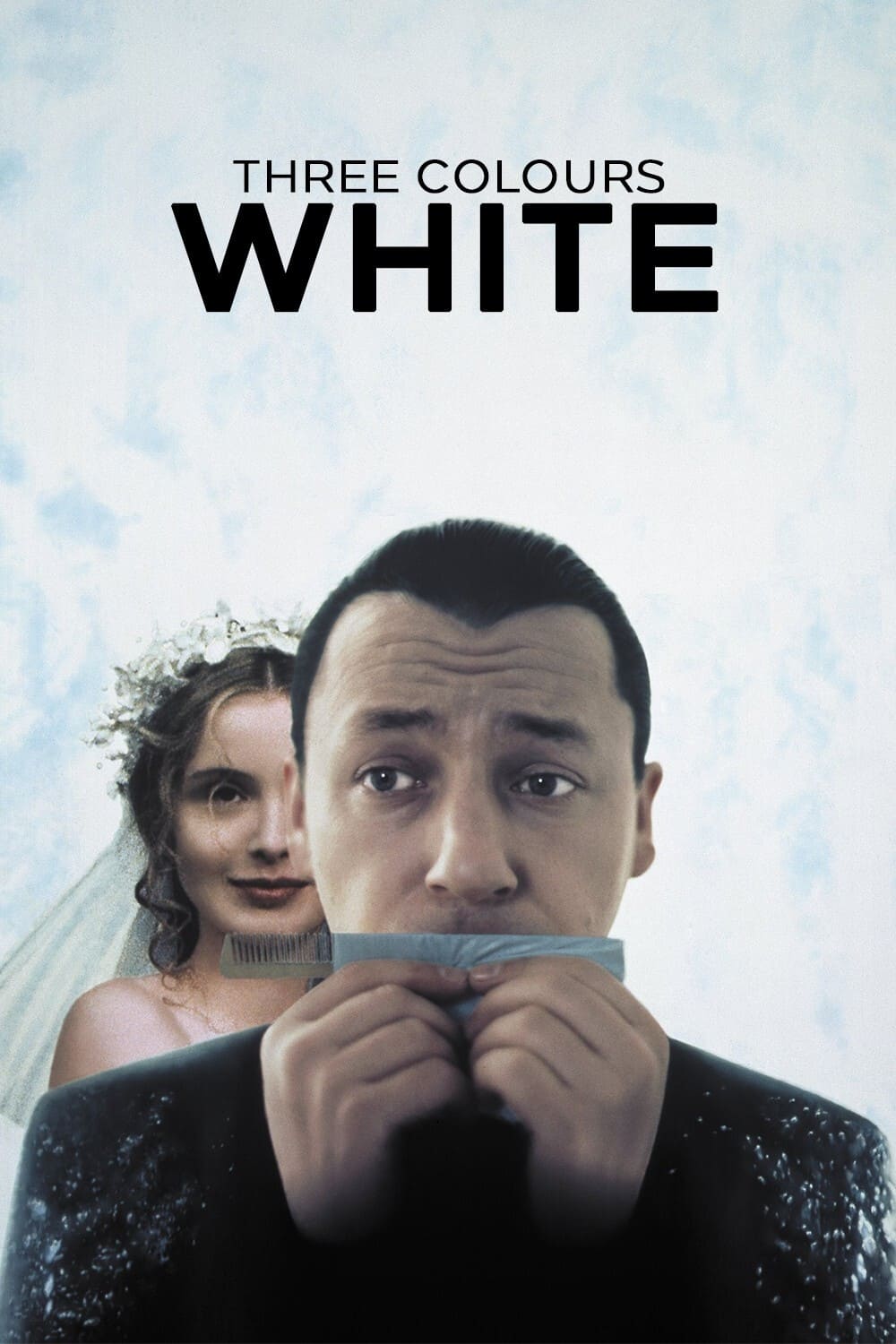 1994-01-26Polish immigrant Karol Karol finds himself out of a marriage, a job and a country when his French wife, Dominique, divorces him after six months due to his impotence. Forced to leave France after losing the business they jointly owned, Karol enlists fellow Polish expatriate Mikołaj to smuggle him back to their homeland.
1994-01-26Polish immigrant Karol Karol finds himself out of a marriage, a job and a country when his French wife, Dominique, divorces him after six months due to his impotence. Forced to leave France after losing the business they jointly owned, Karol enlists fellow Polish expatriate Mikołaj to smuggle him back to their homeland.Three Colors: Red
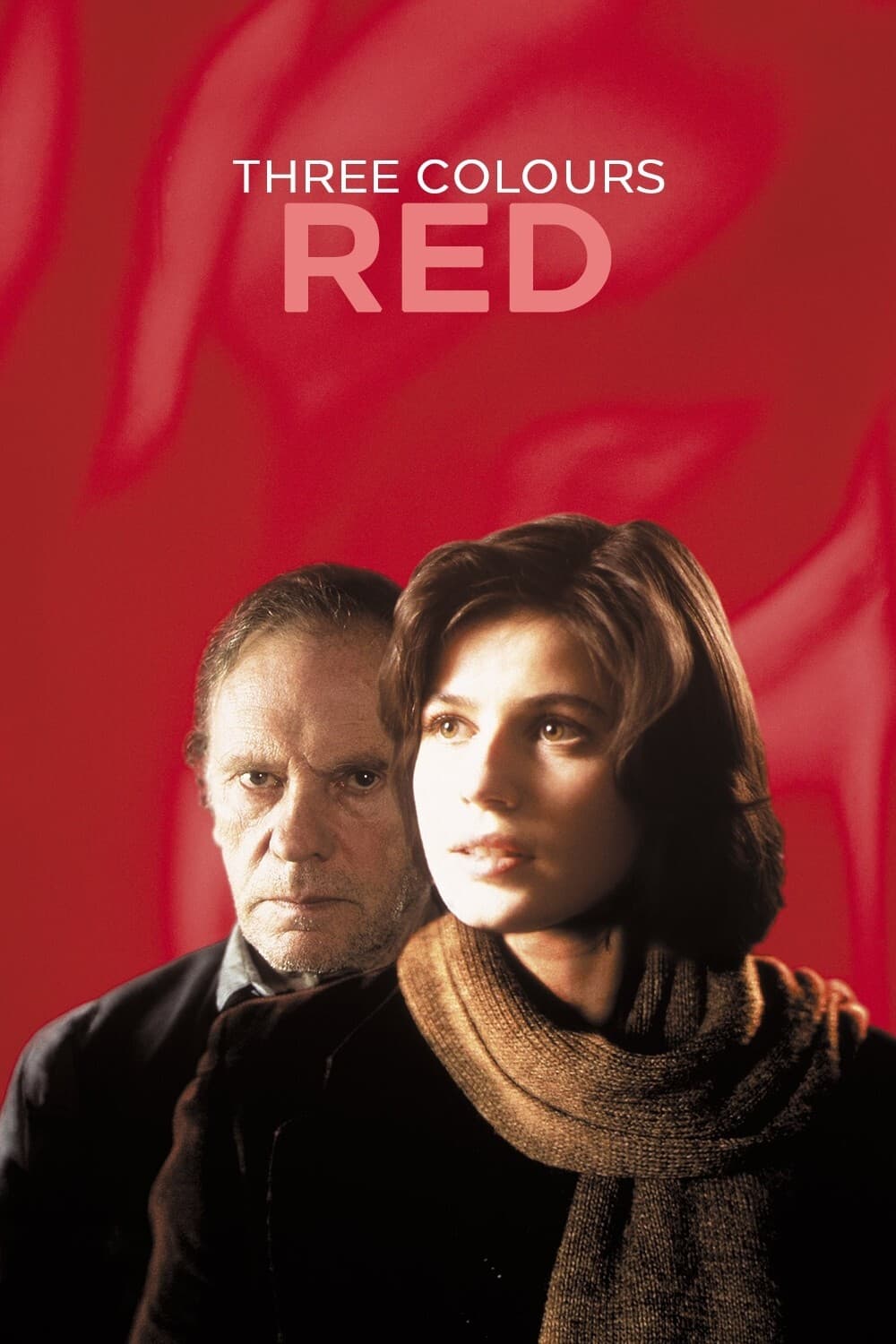 1994-05-12Part-time model Valentine unexpectedly befriends a retired judge after she runs over his dog. At first, the grumpy man shows no concern about the dog, and Valentine decides to keep it. But the two form a bond when she returns to his house and catches him listening to his neighbors’ phone calls.
1994-05-12Part-time model Valentine unexpectedly befriends a retired judge after she runs over his dog. At first, the grumpy man shows no concern about the dog, and Valentine decides to keep it. But the two form a bond when she returns to his house and catches him listening to his neighbors’ phone calls.
